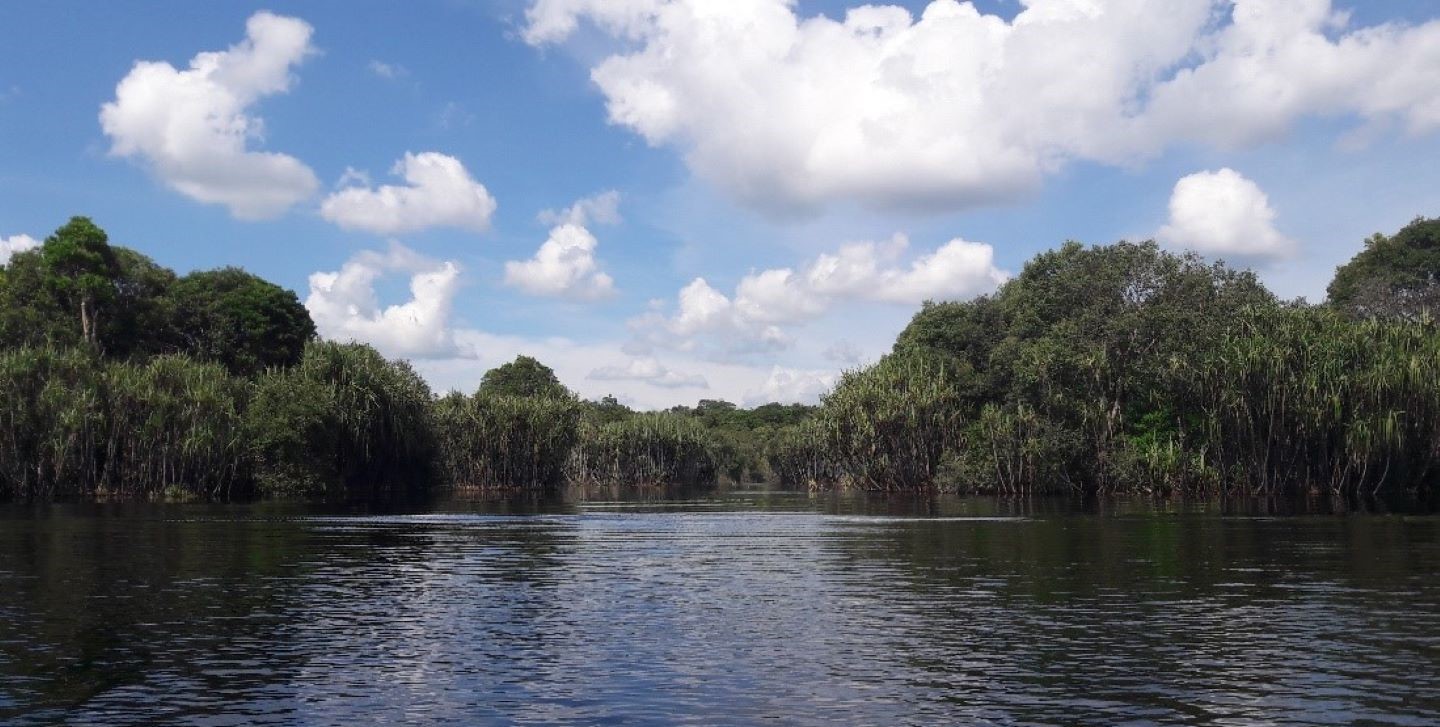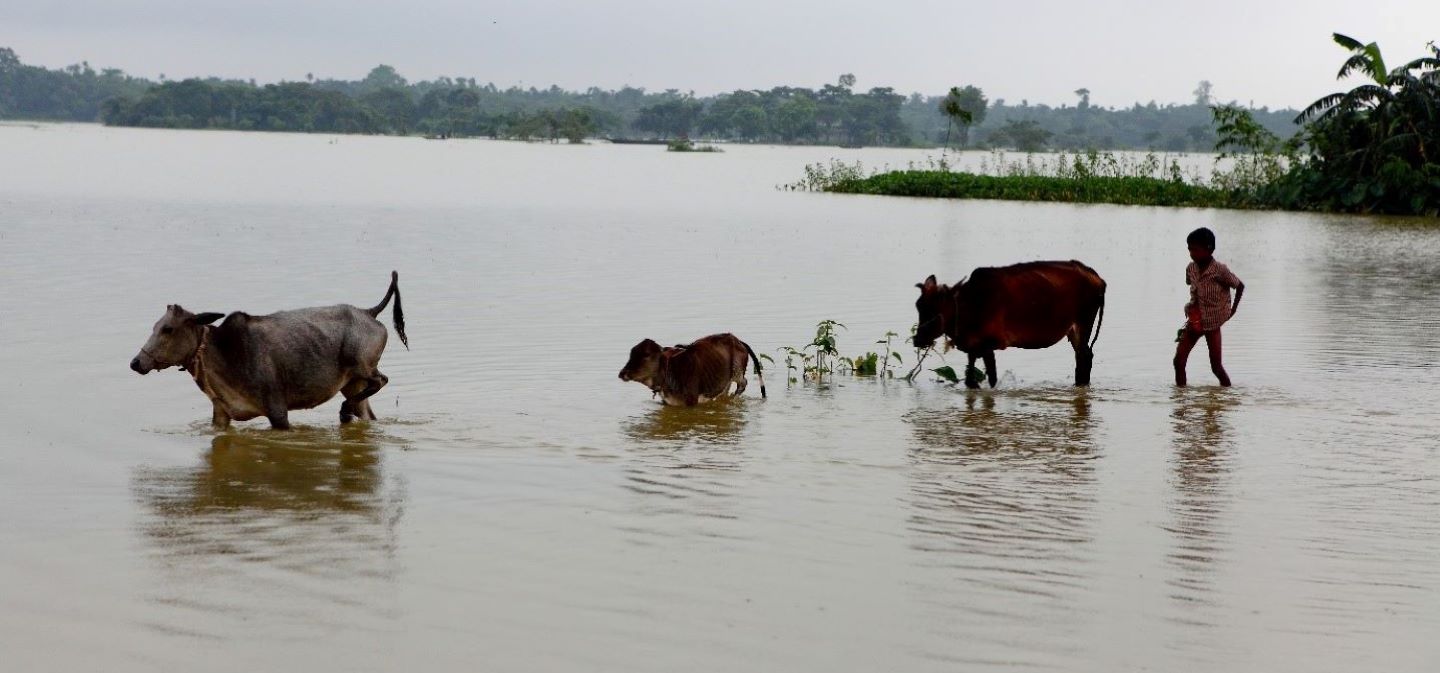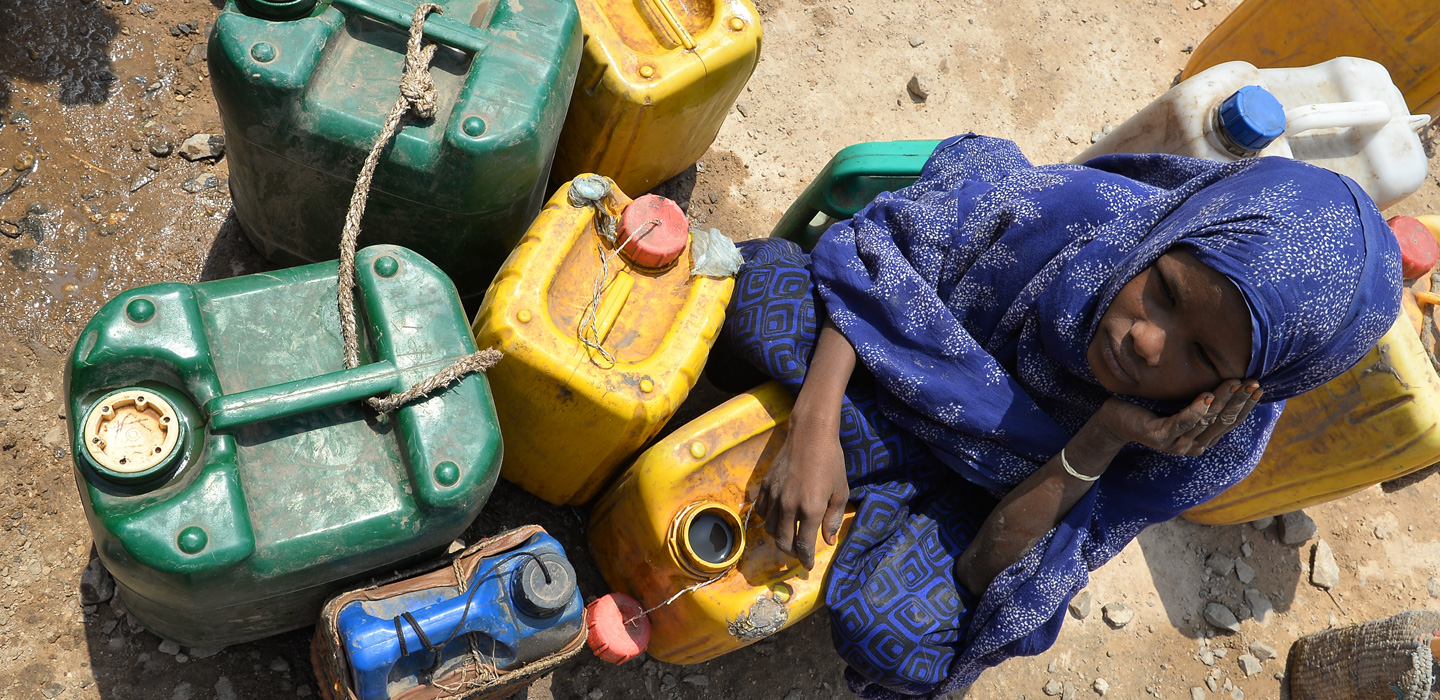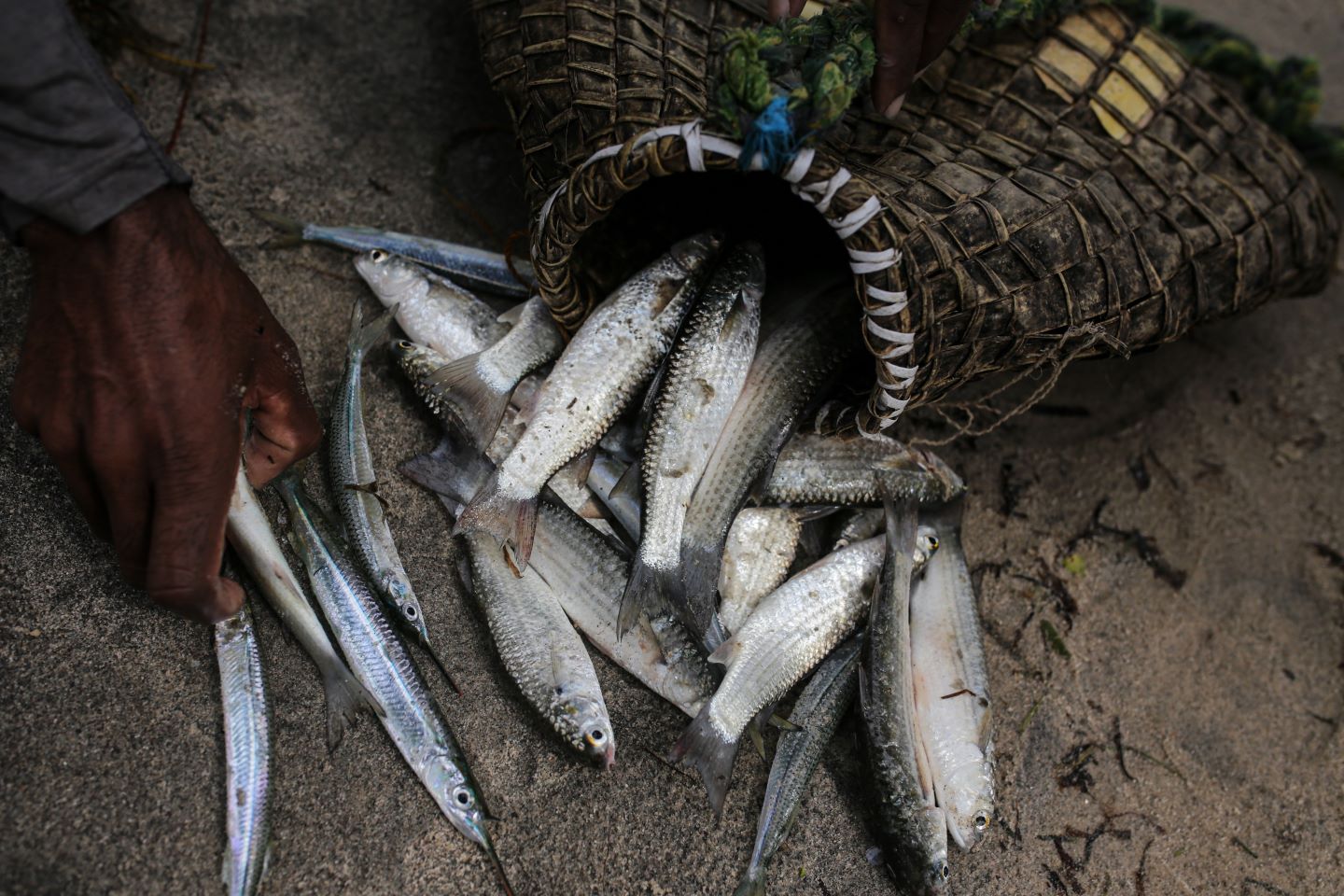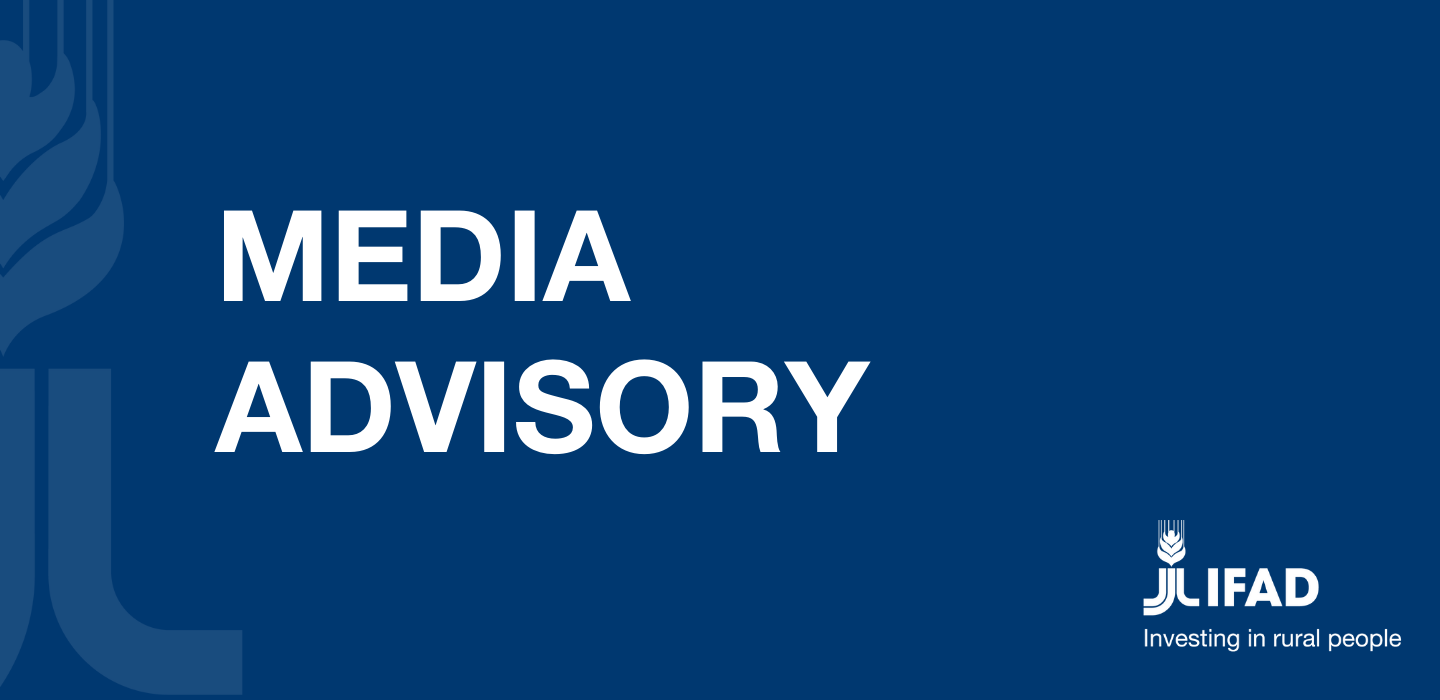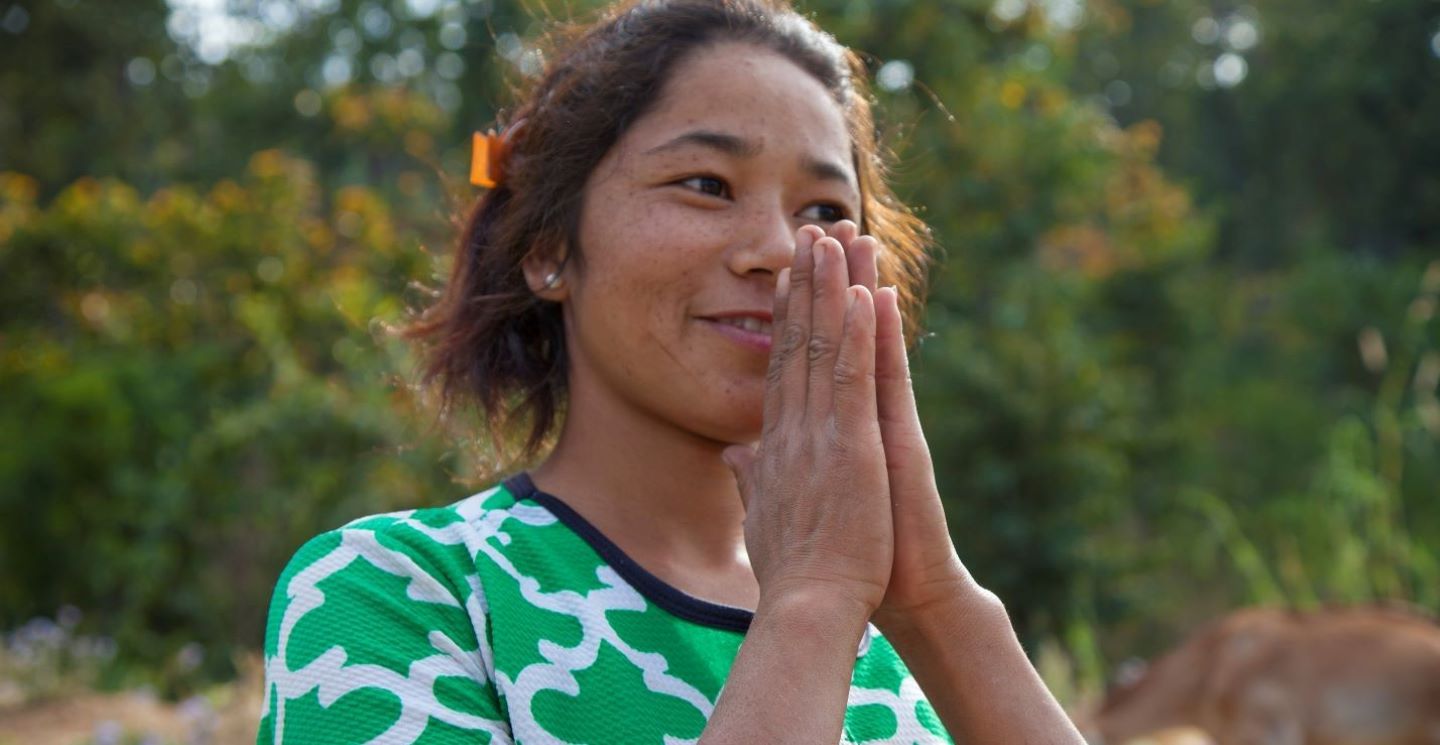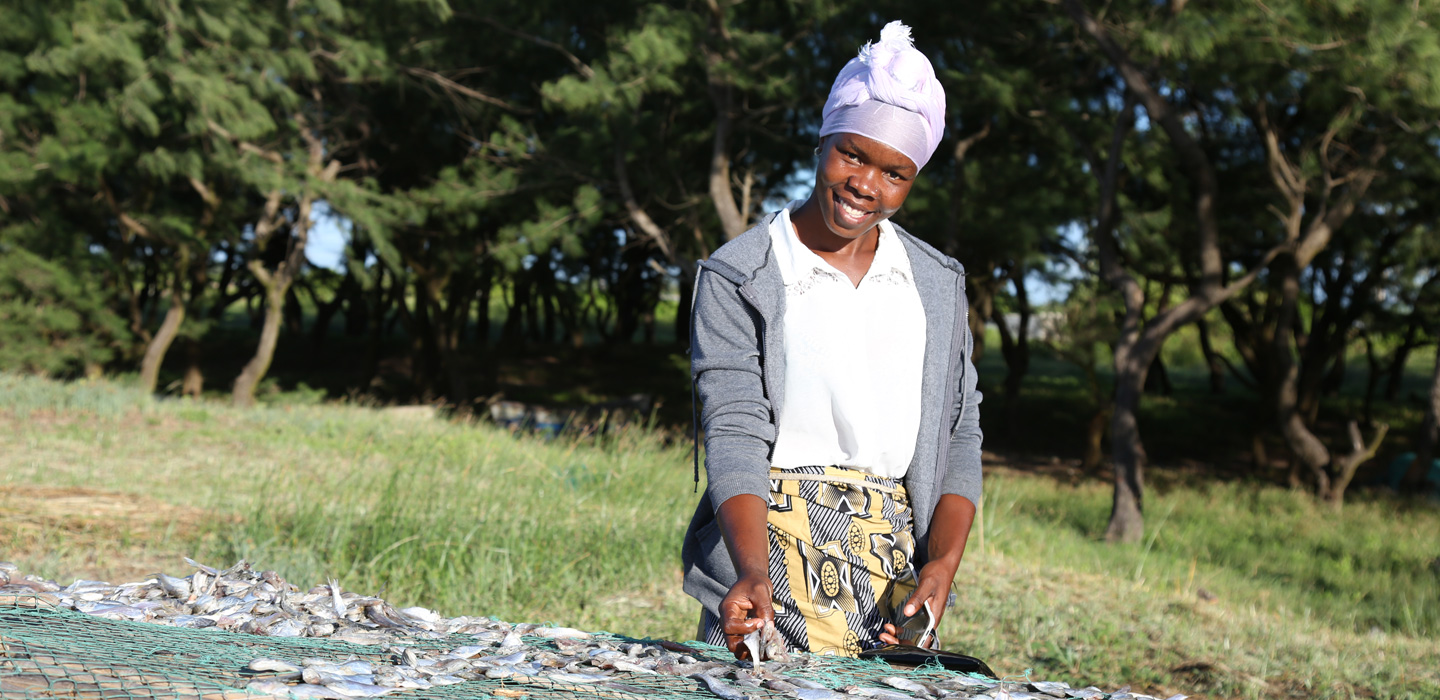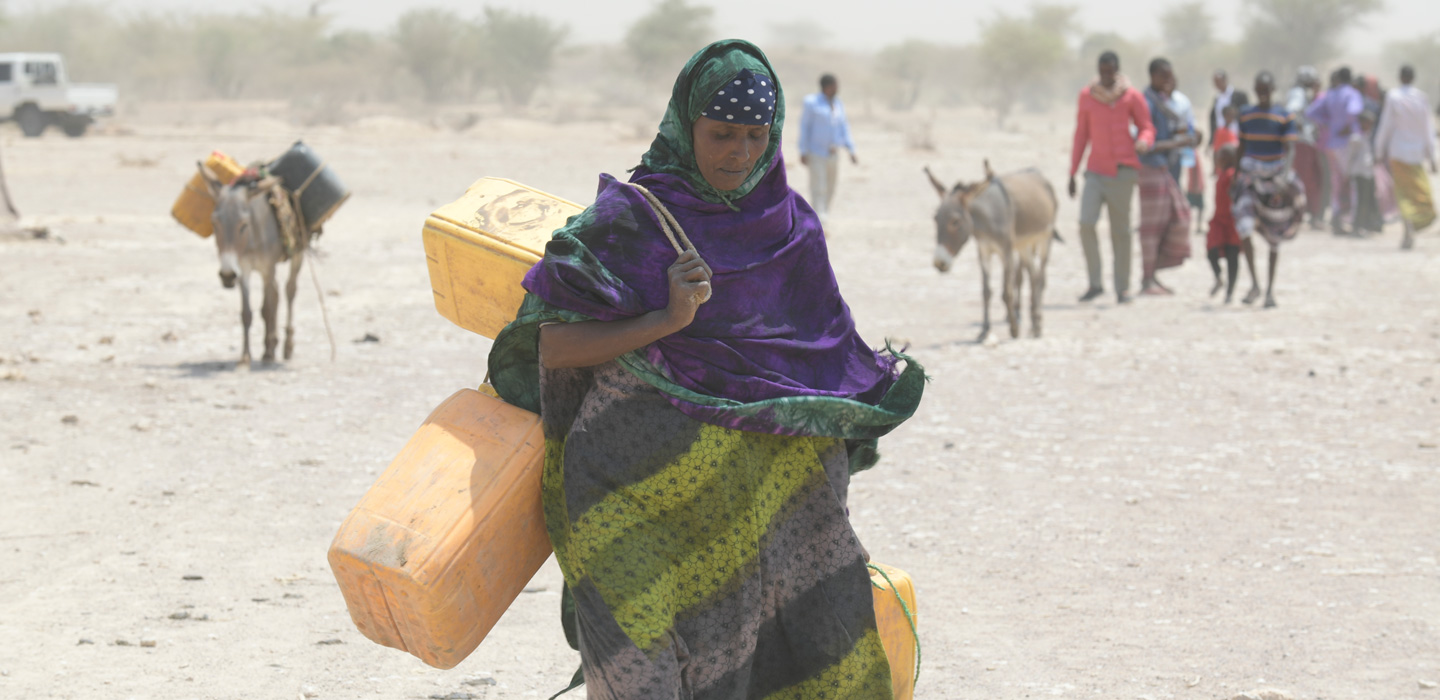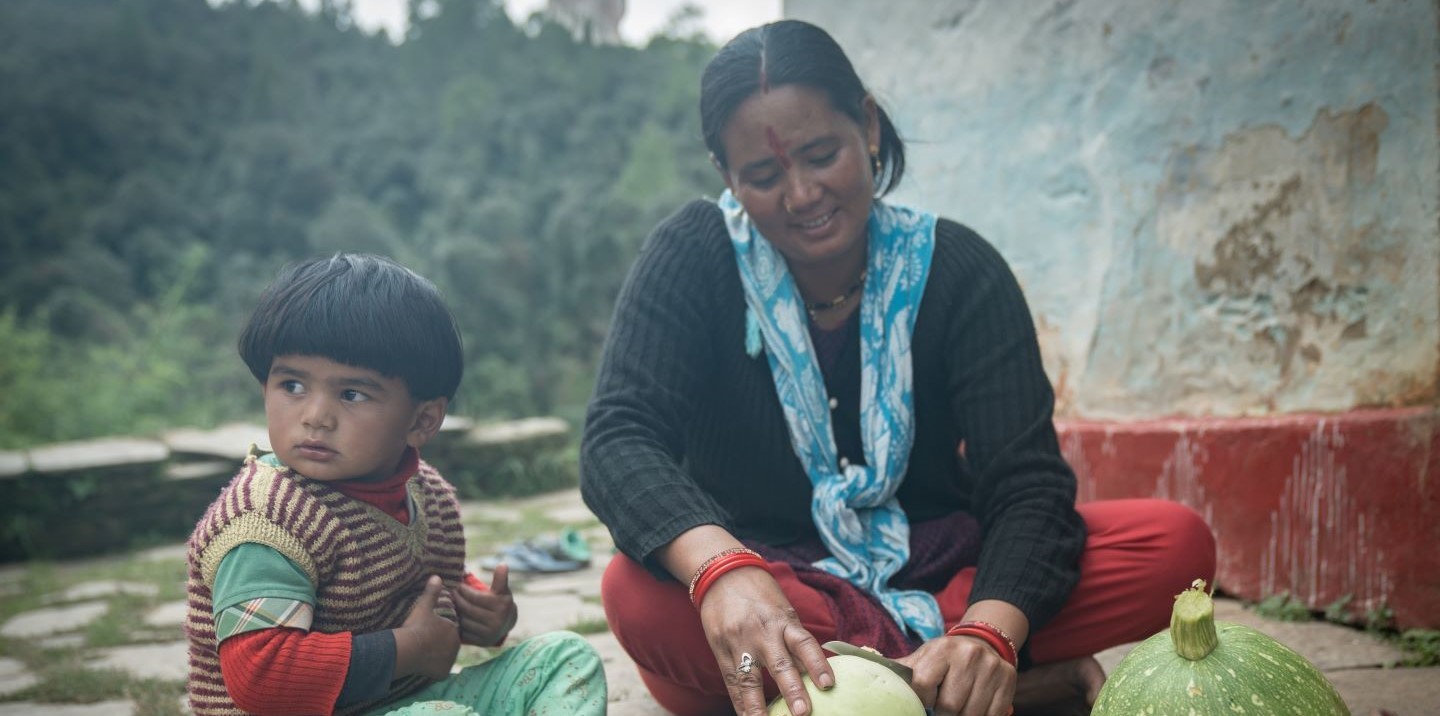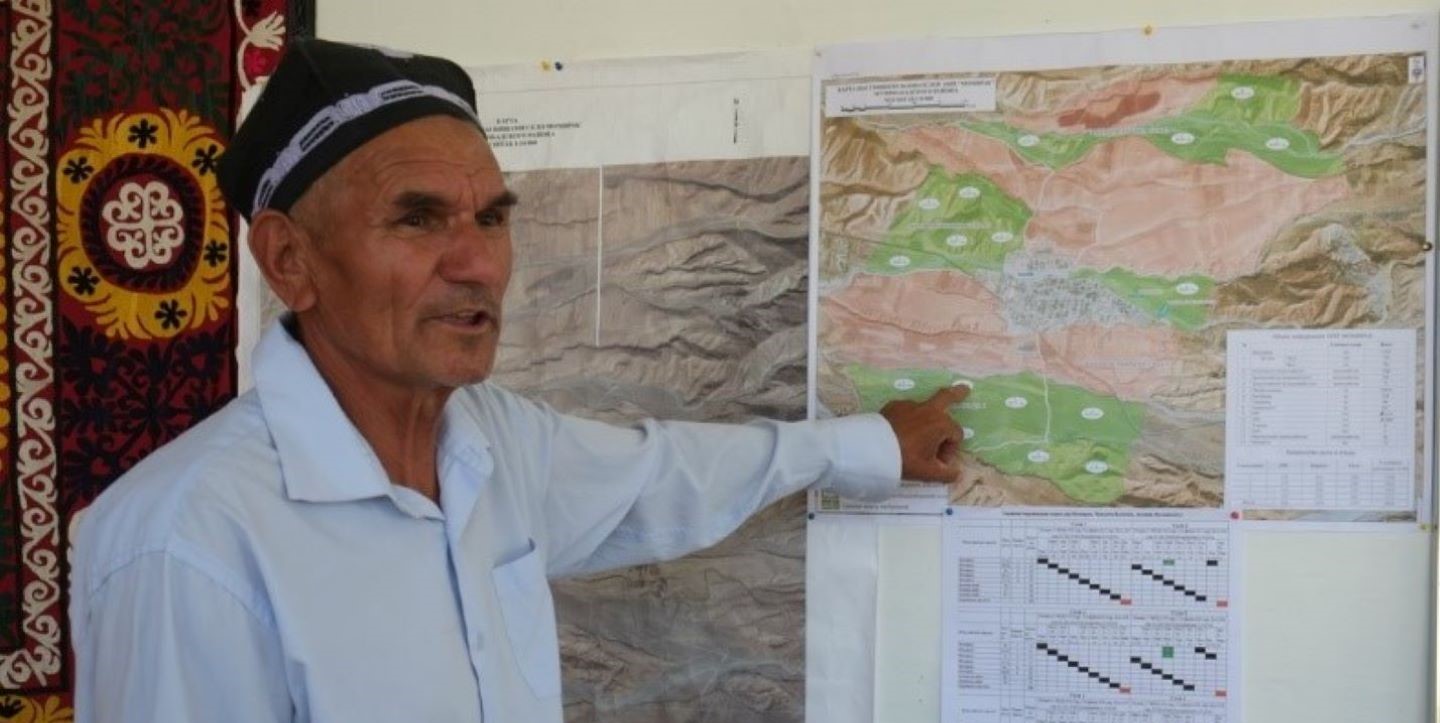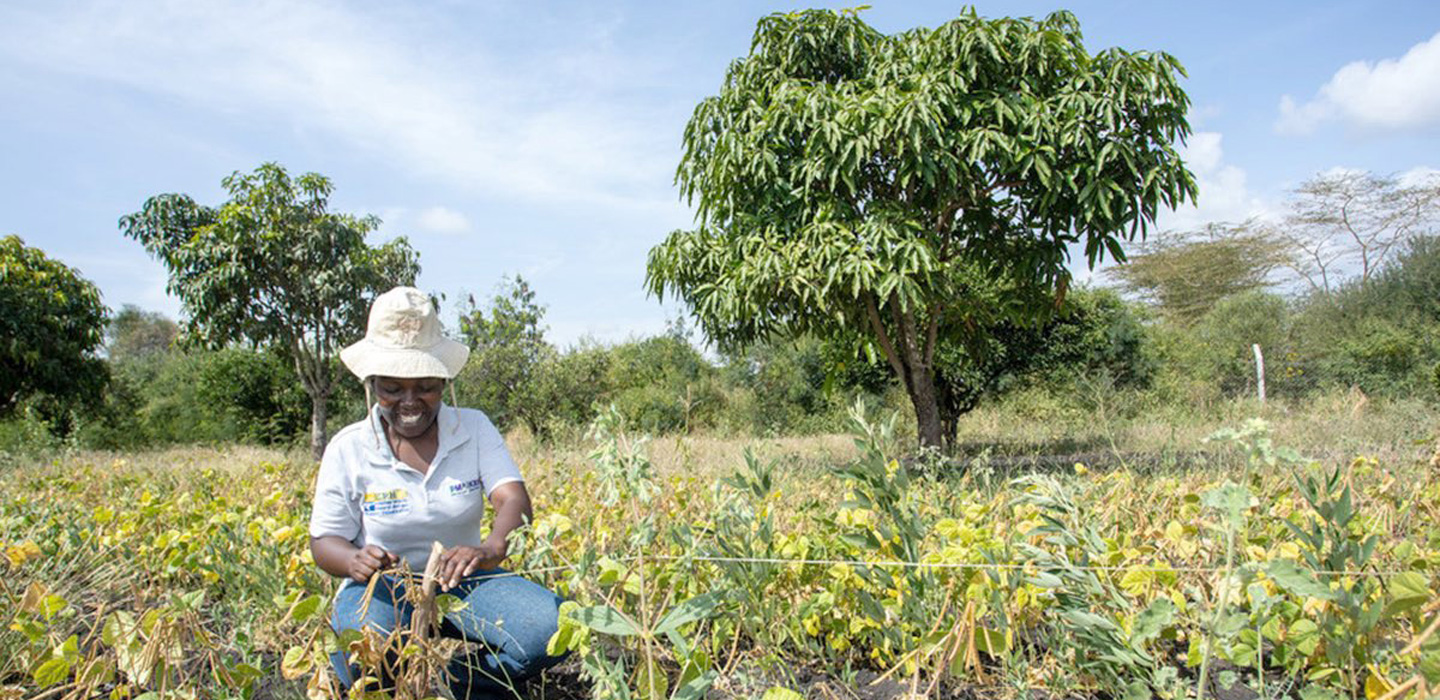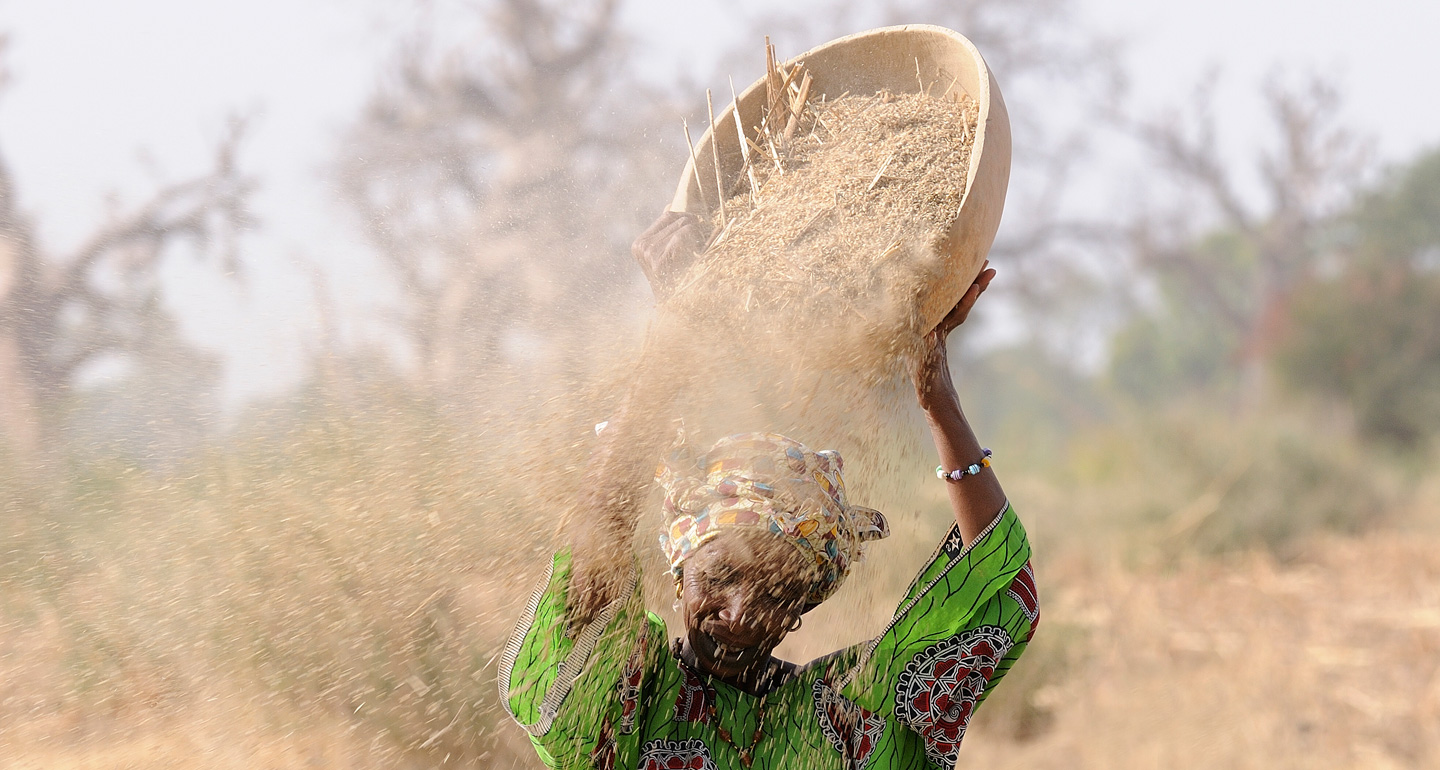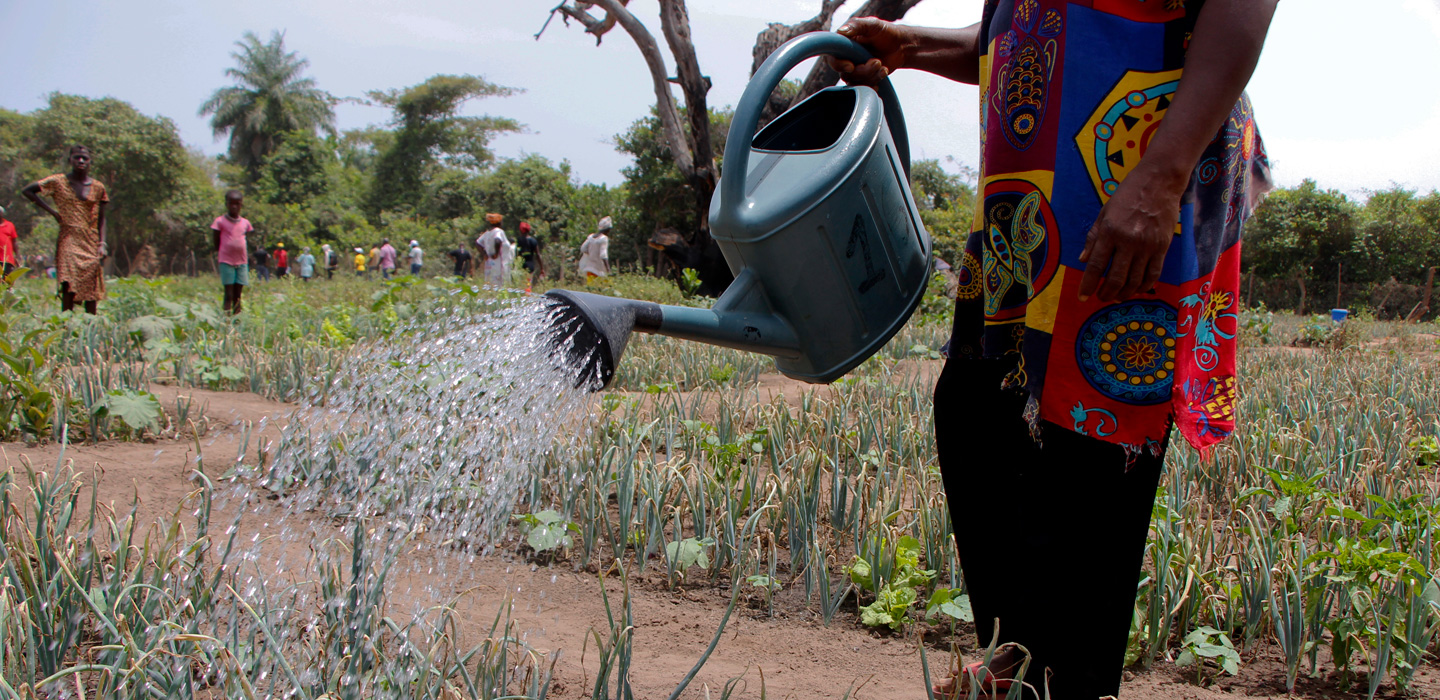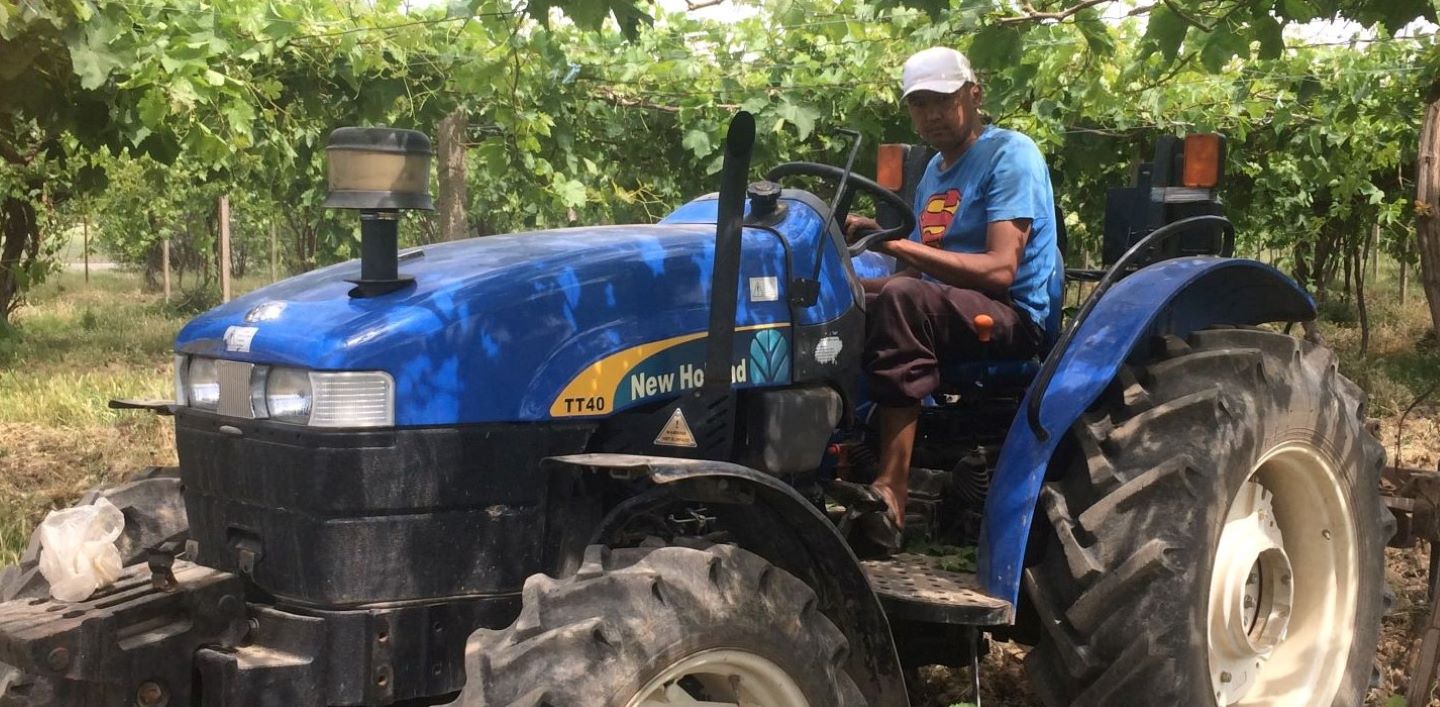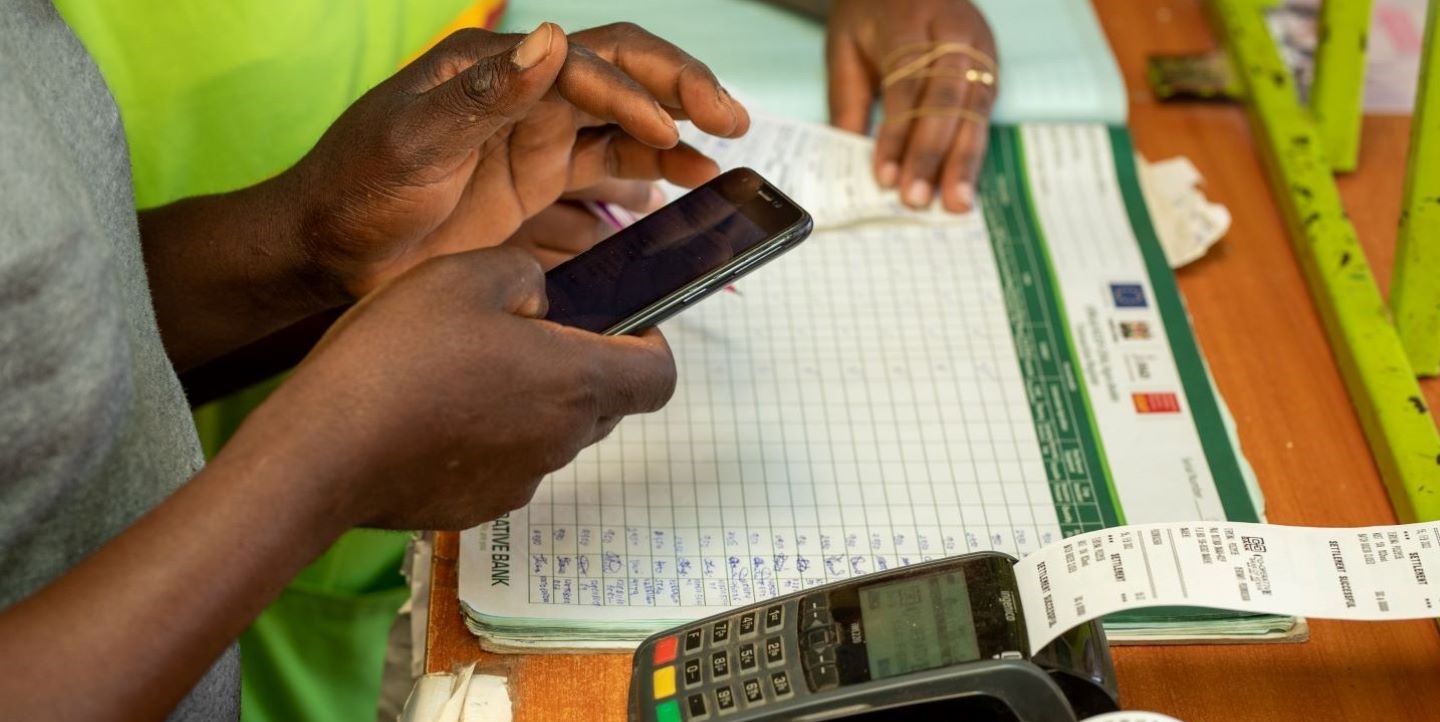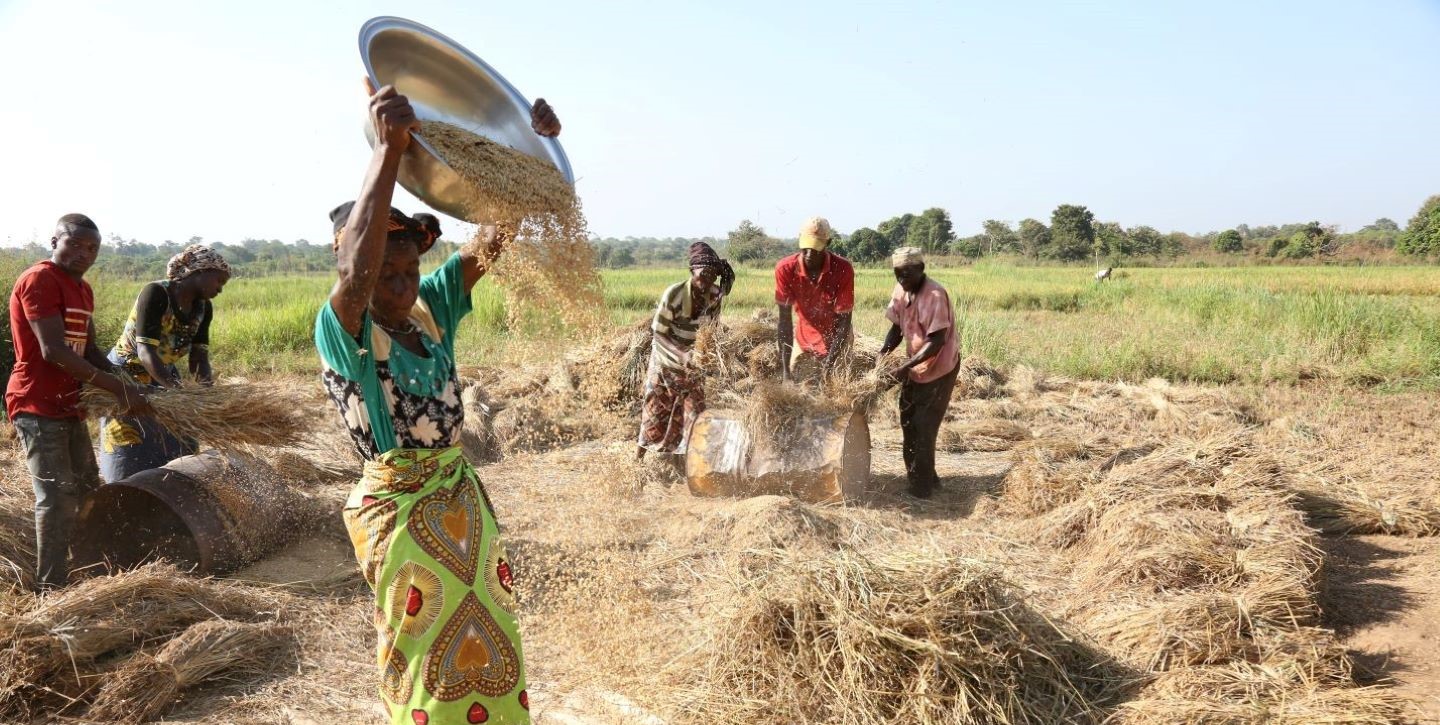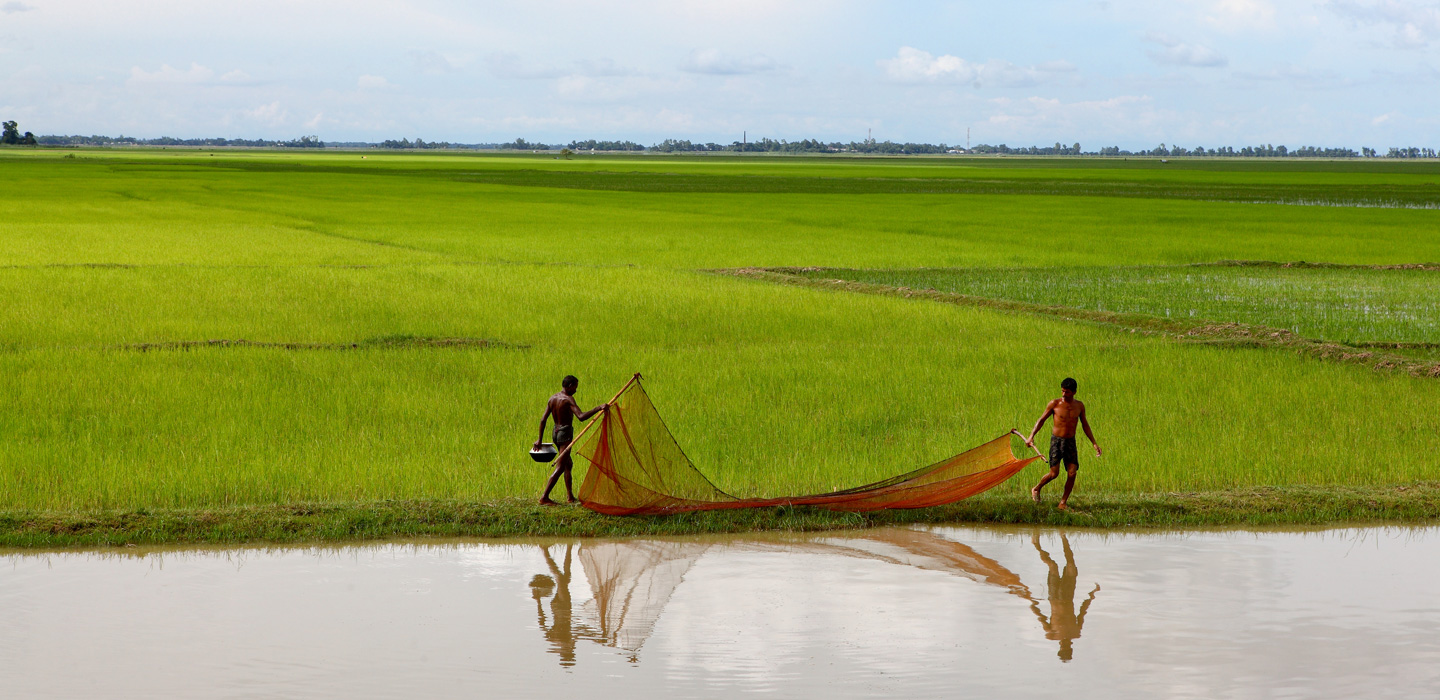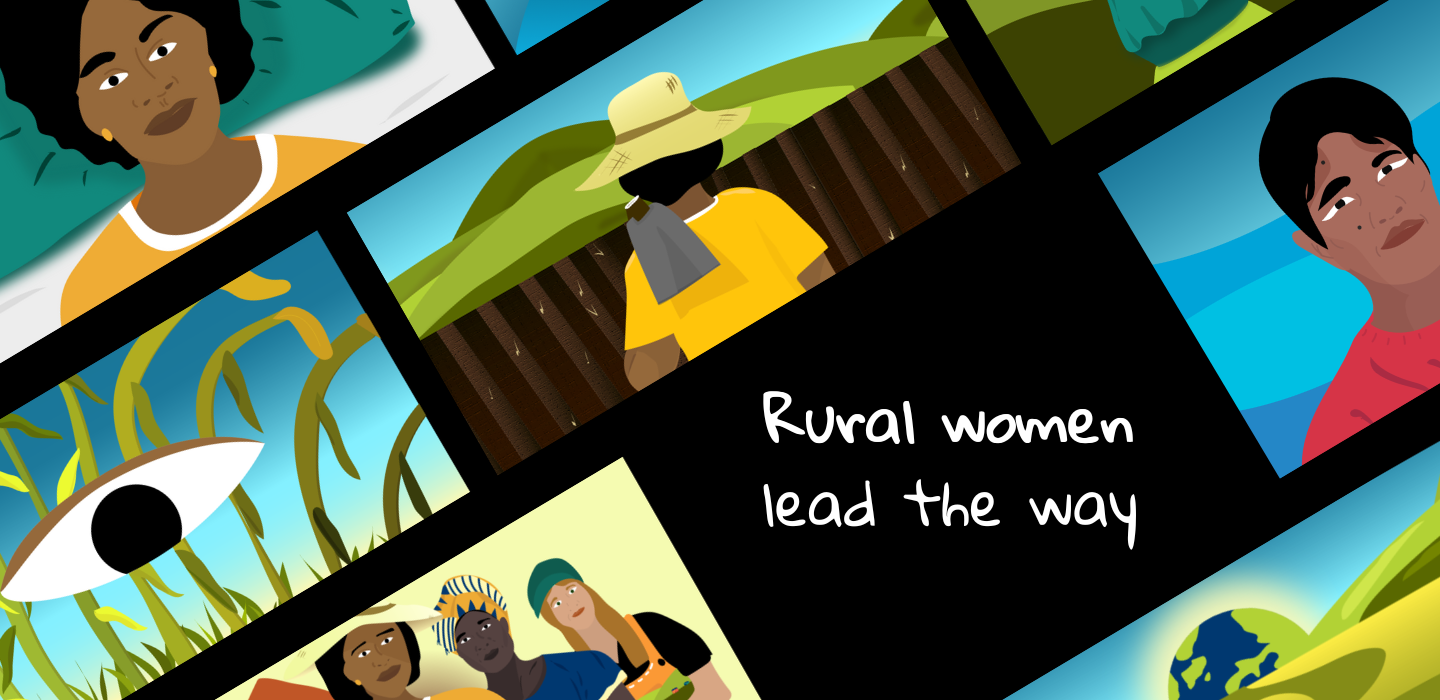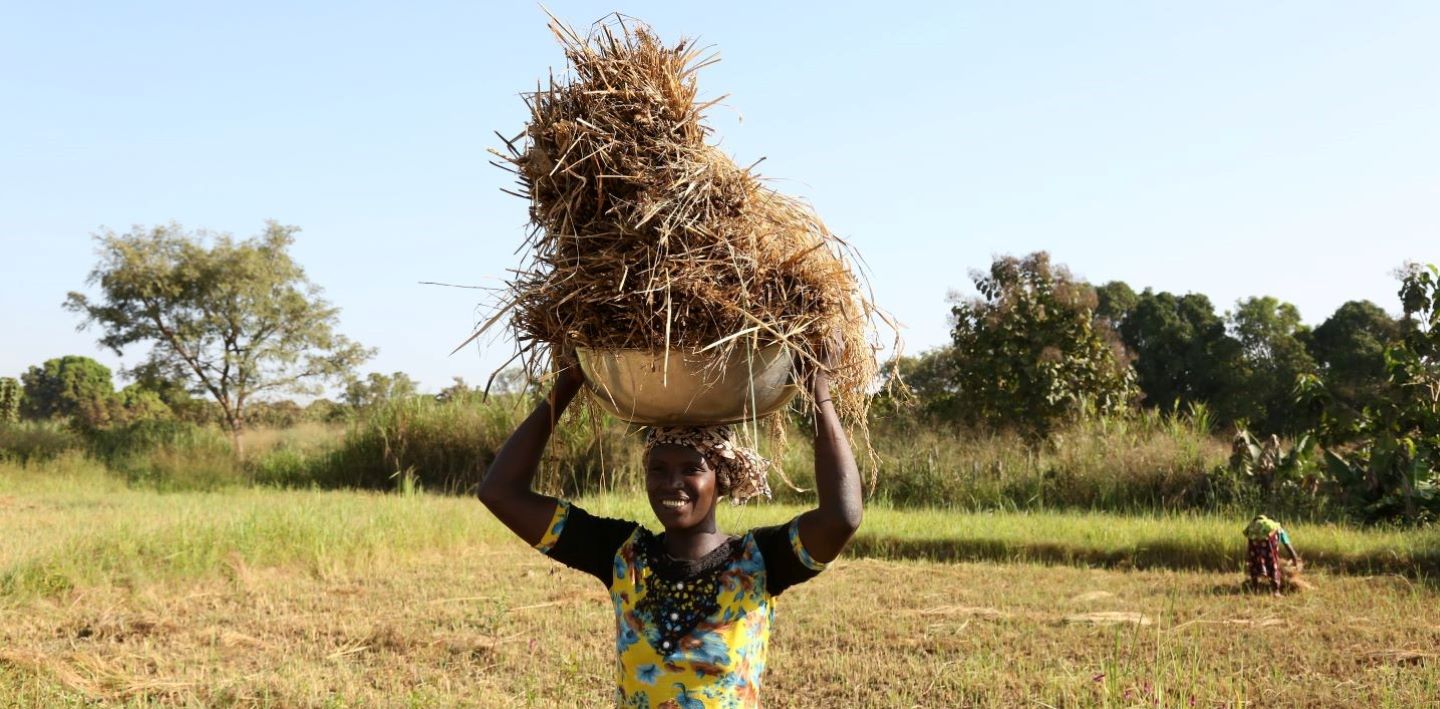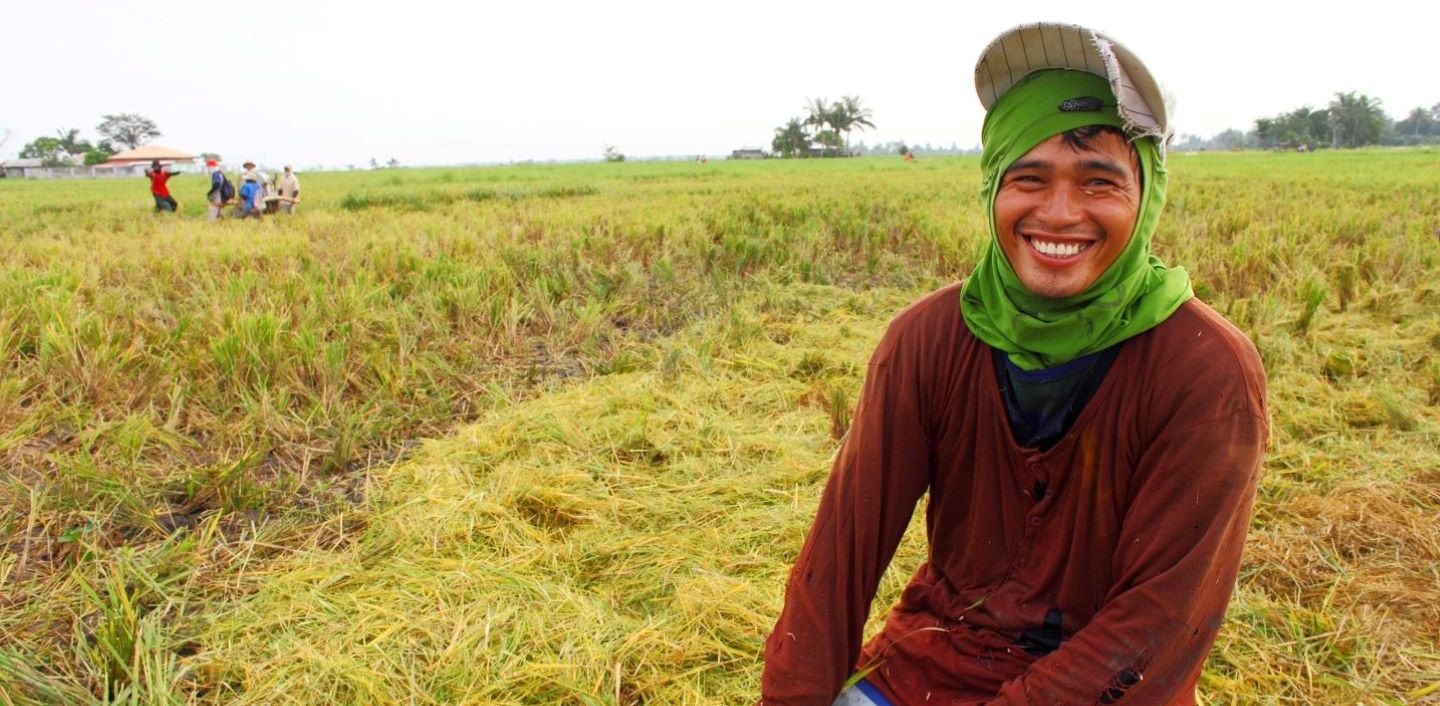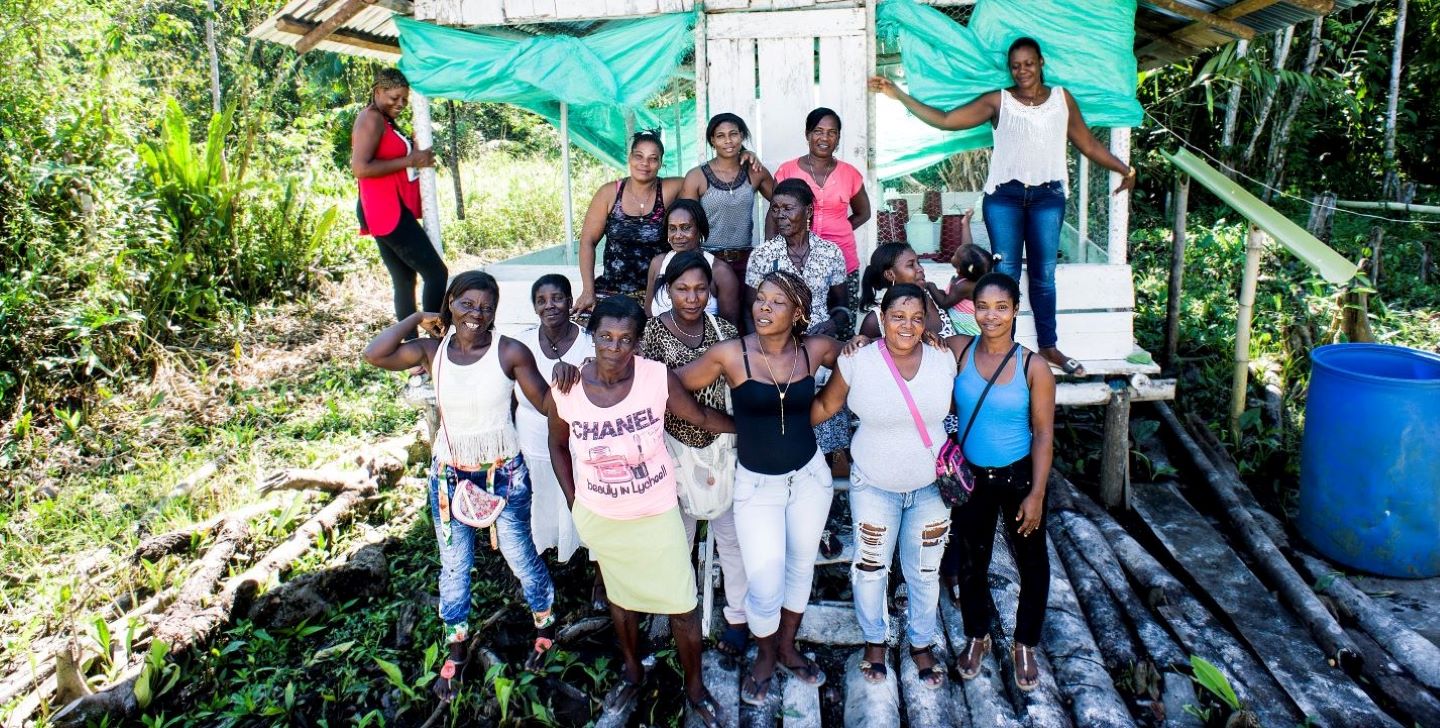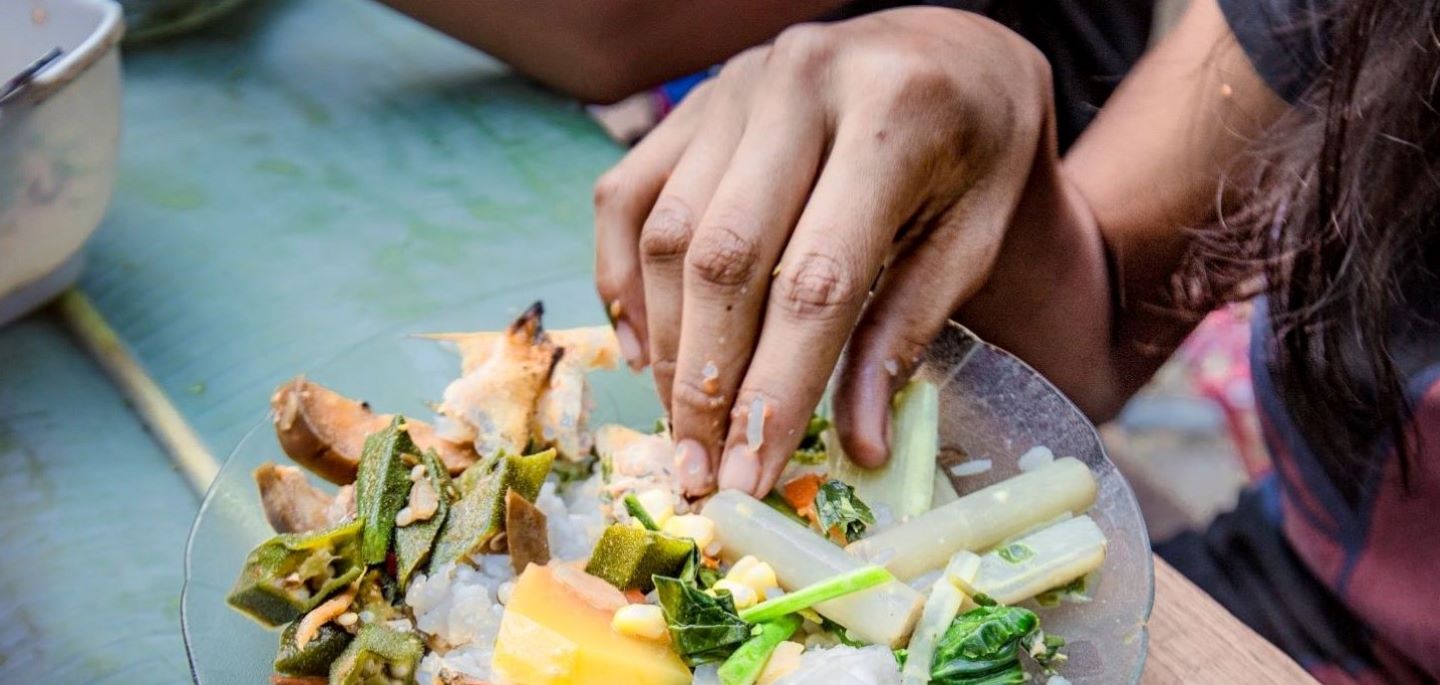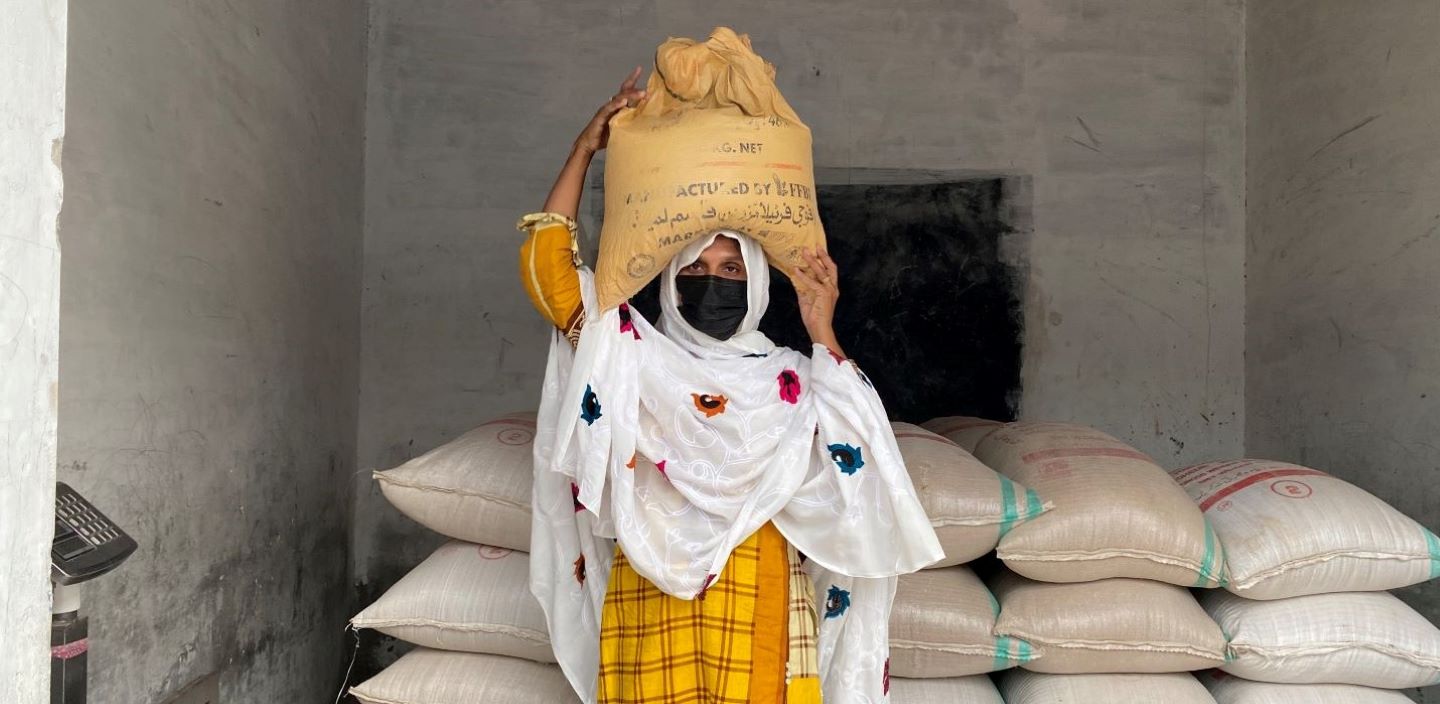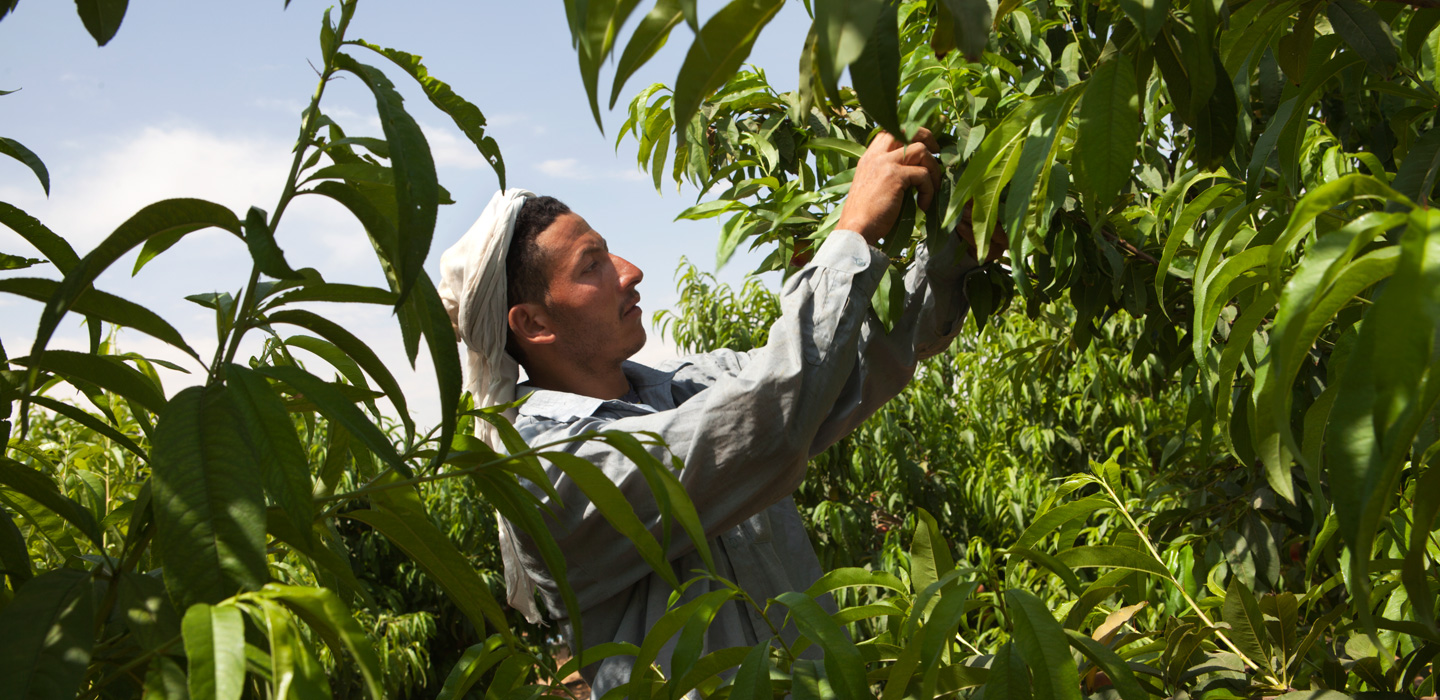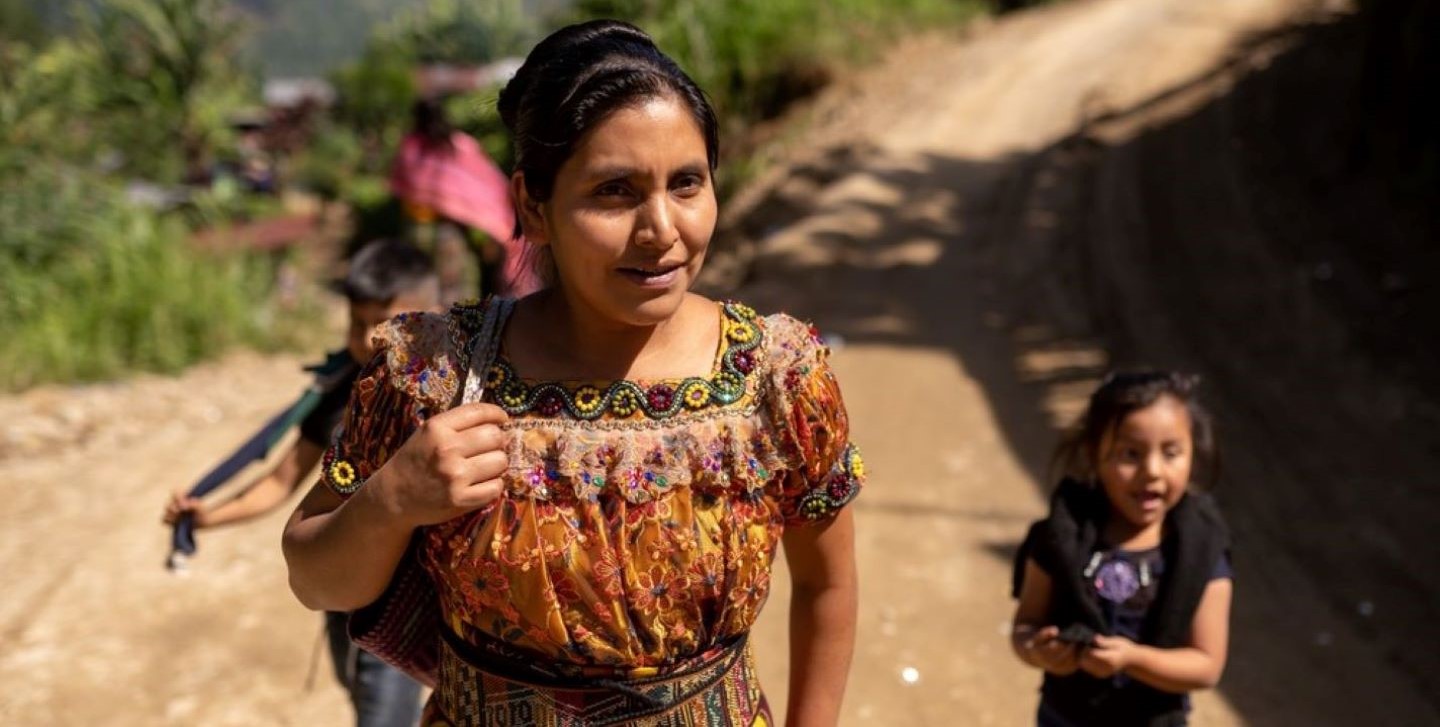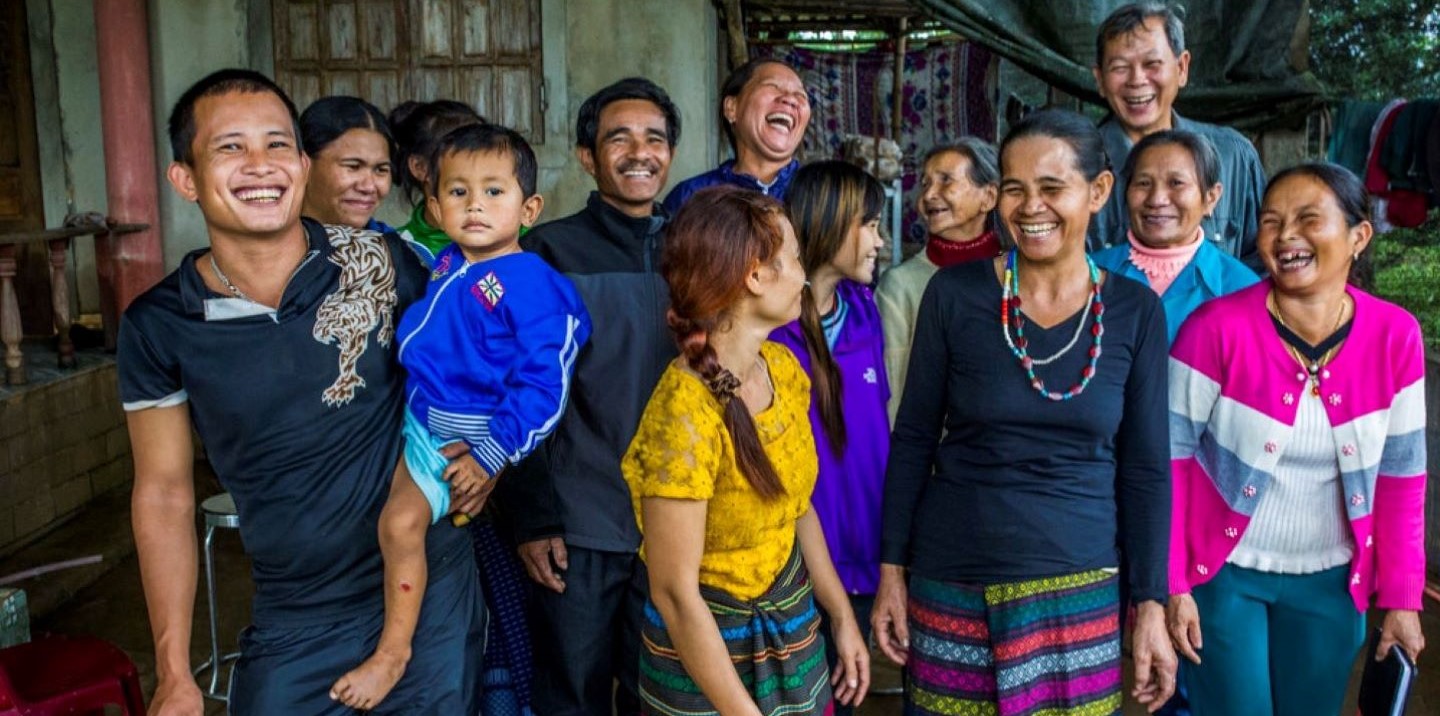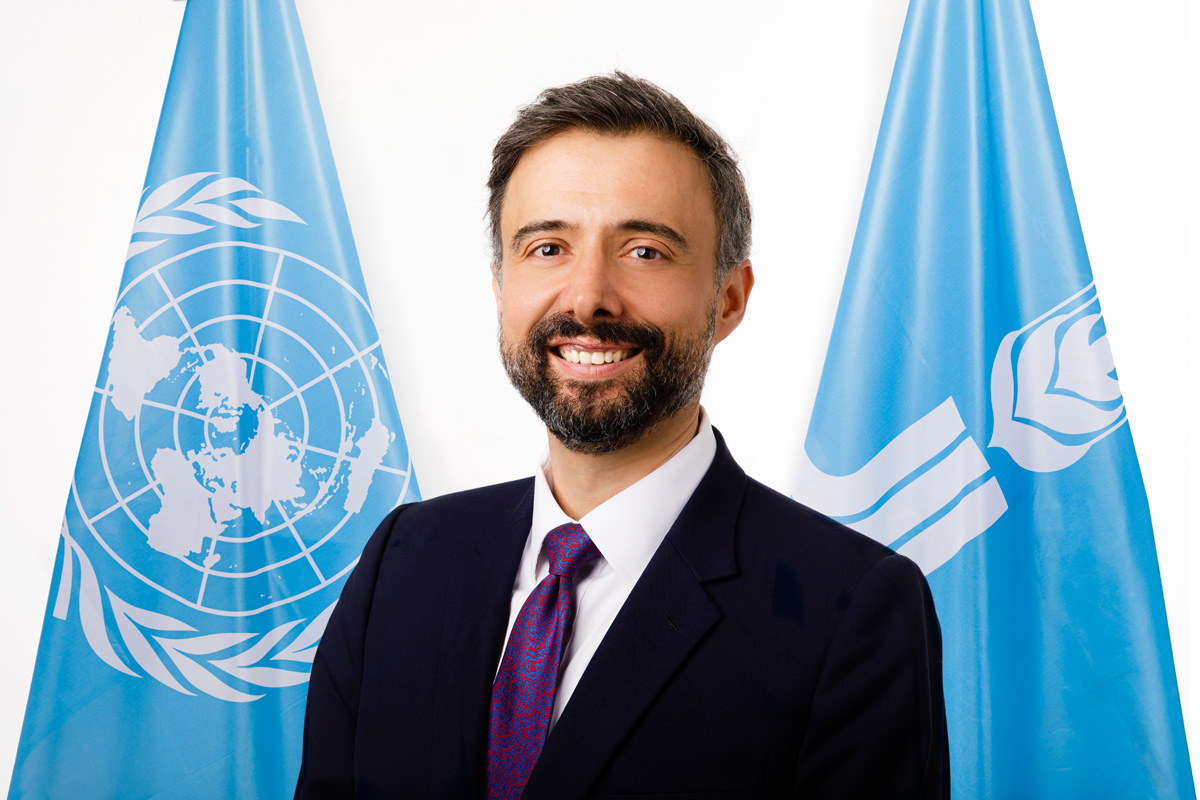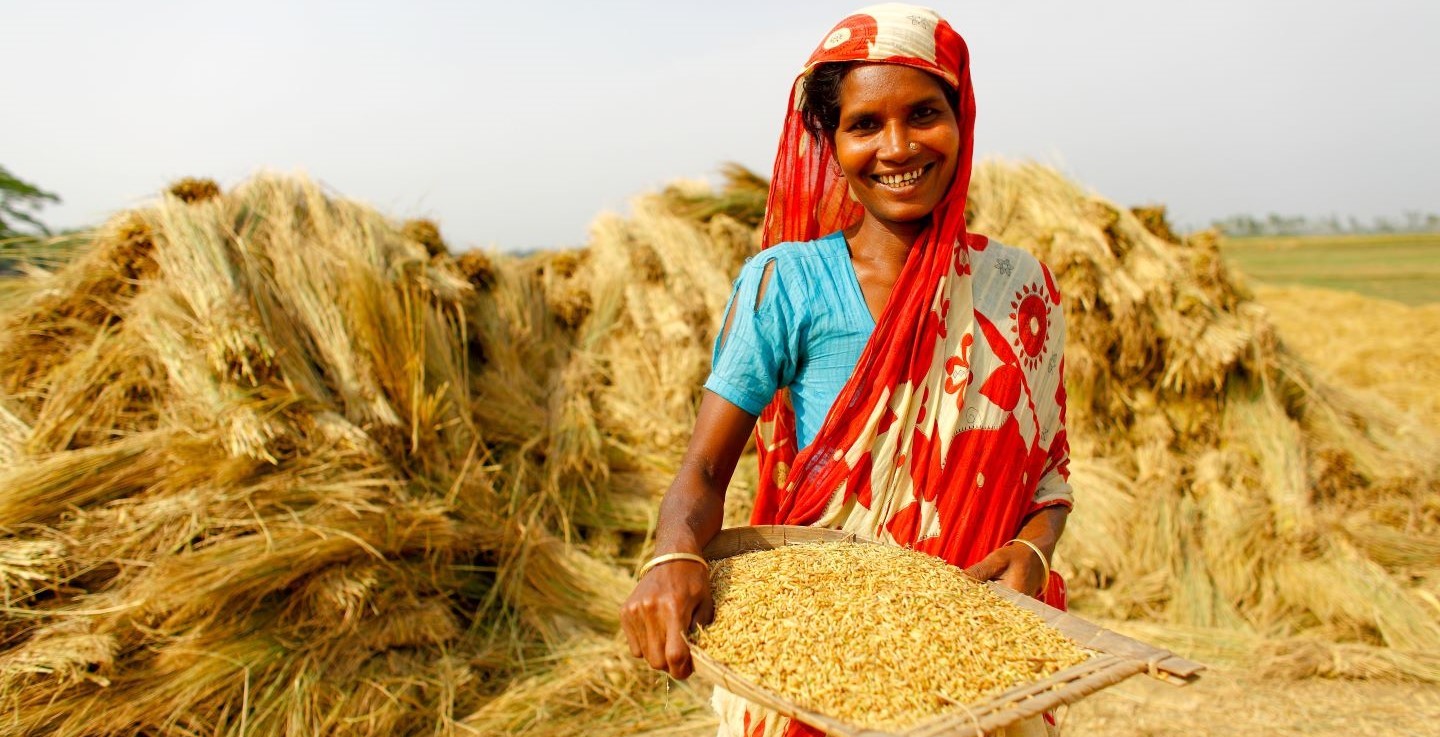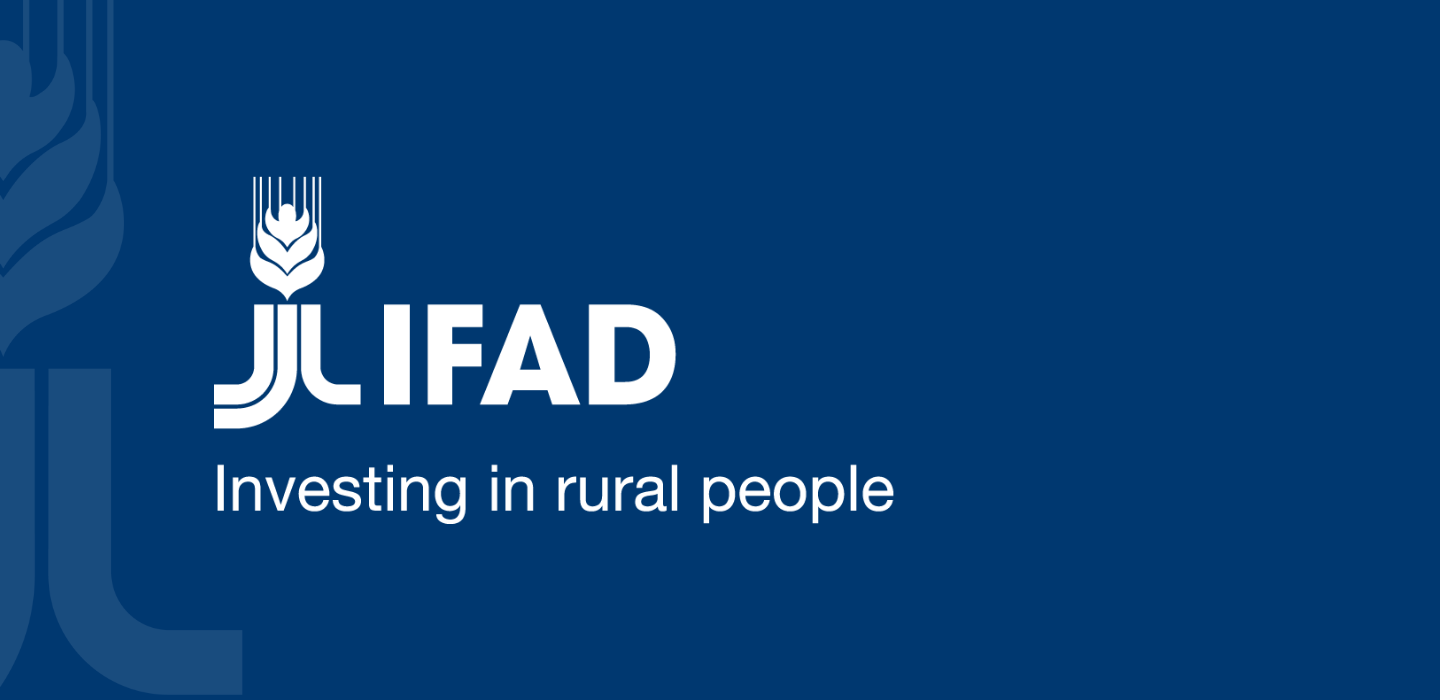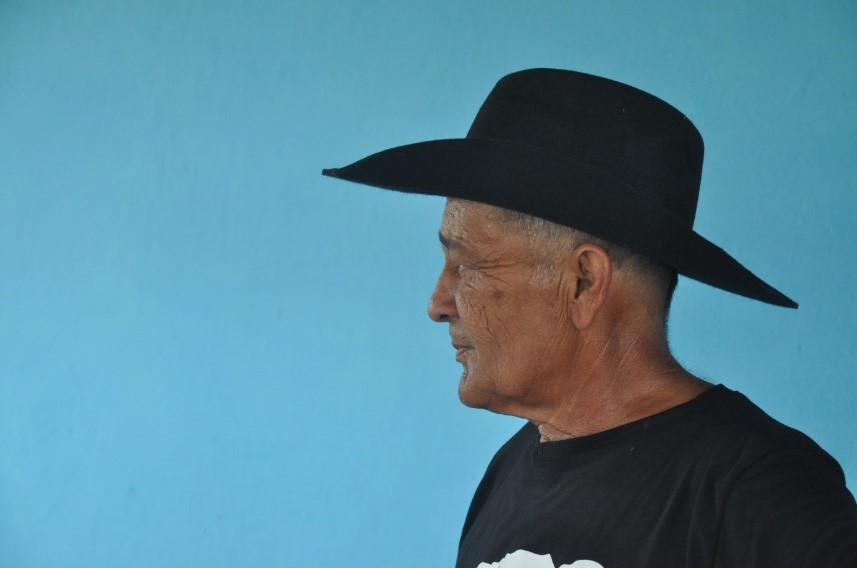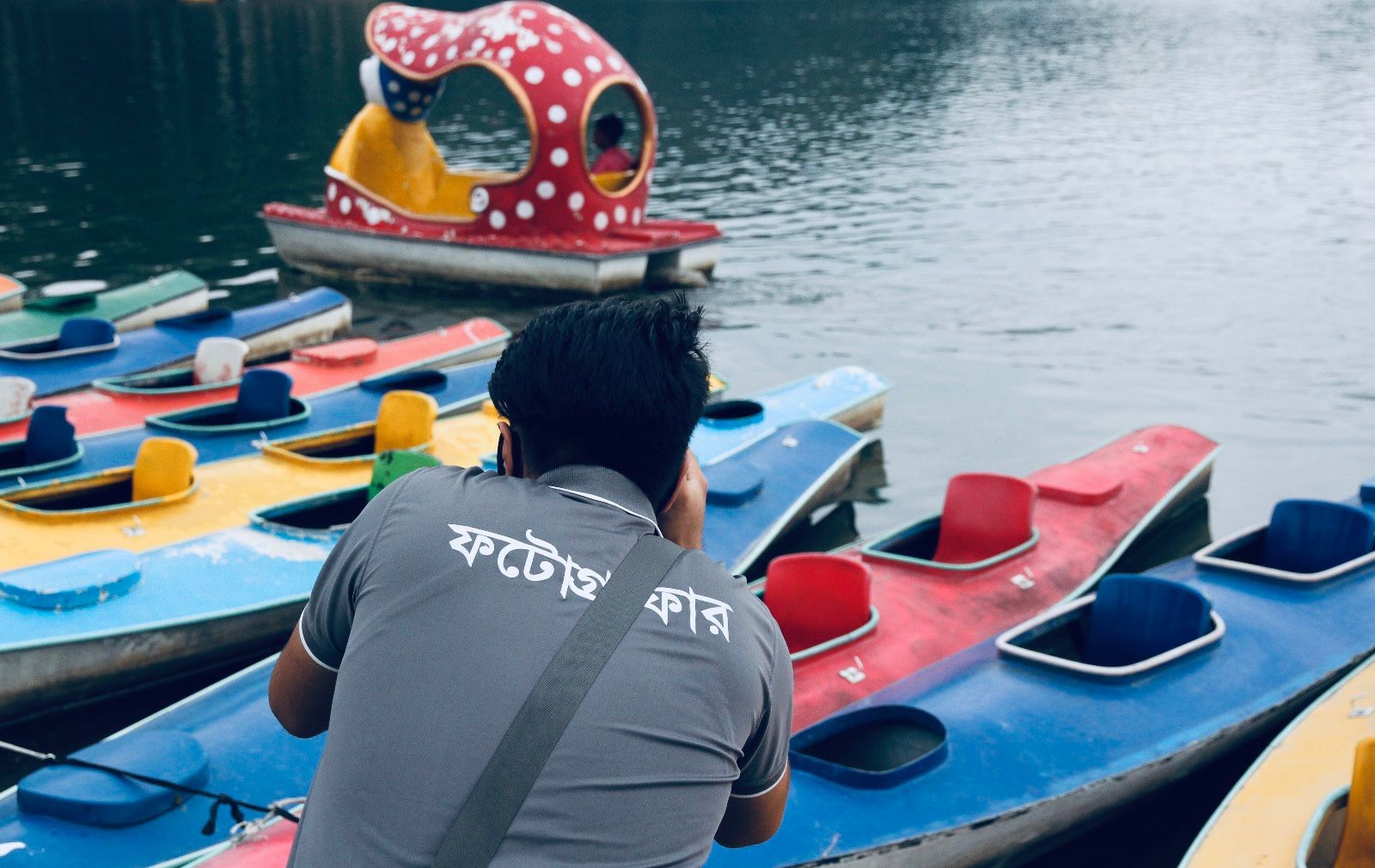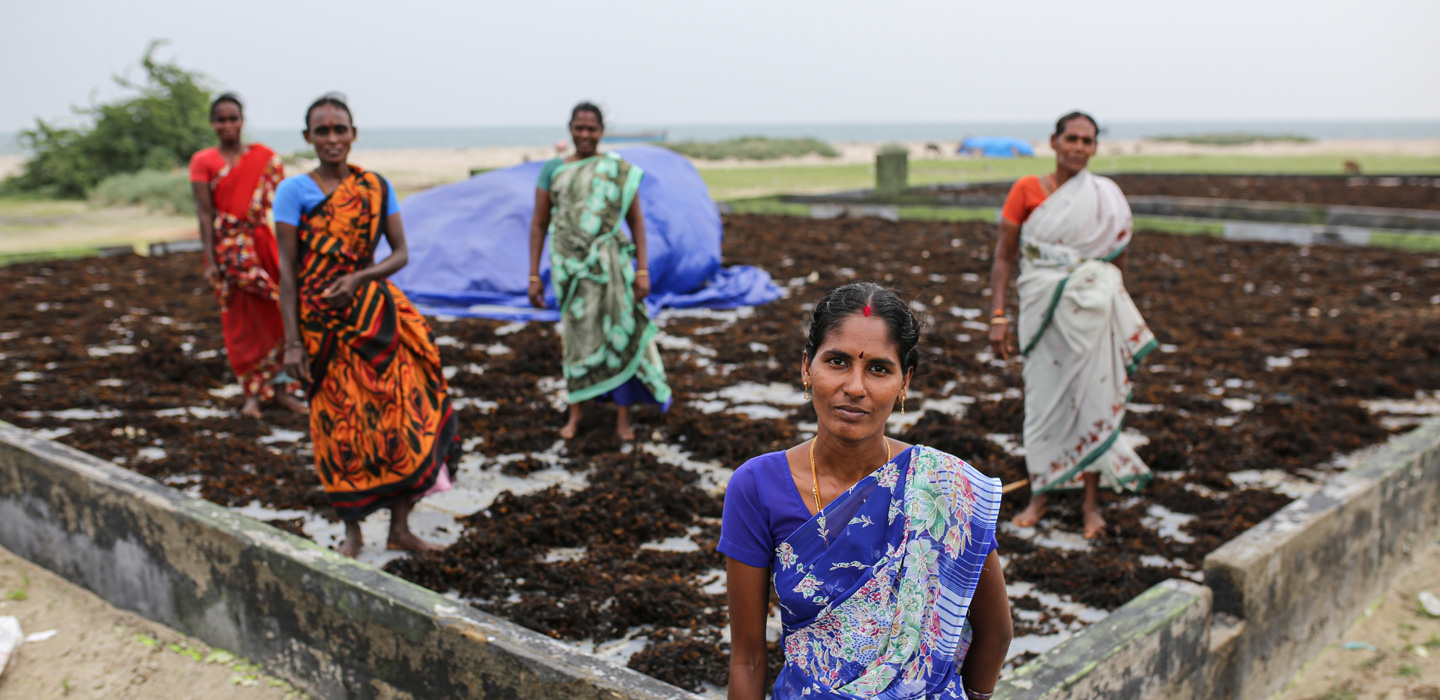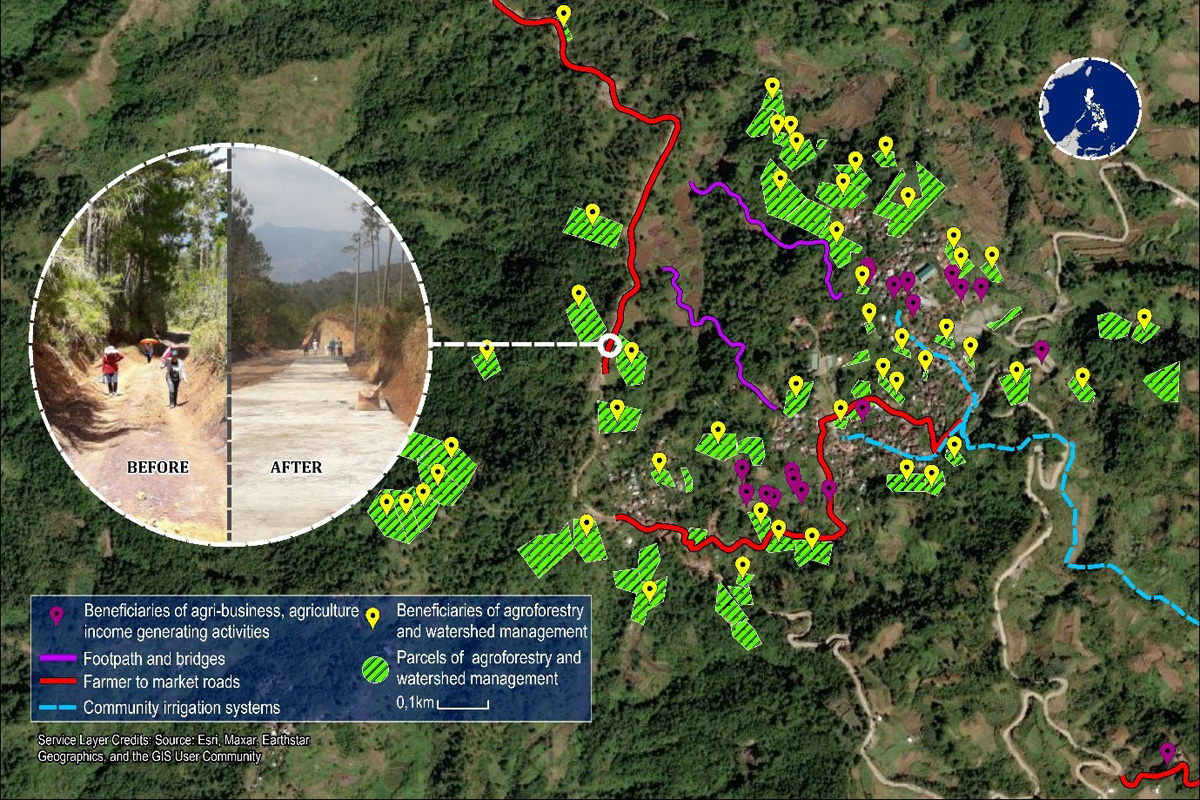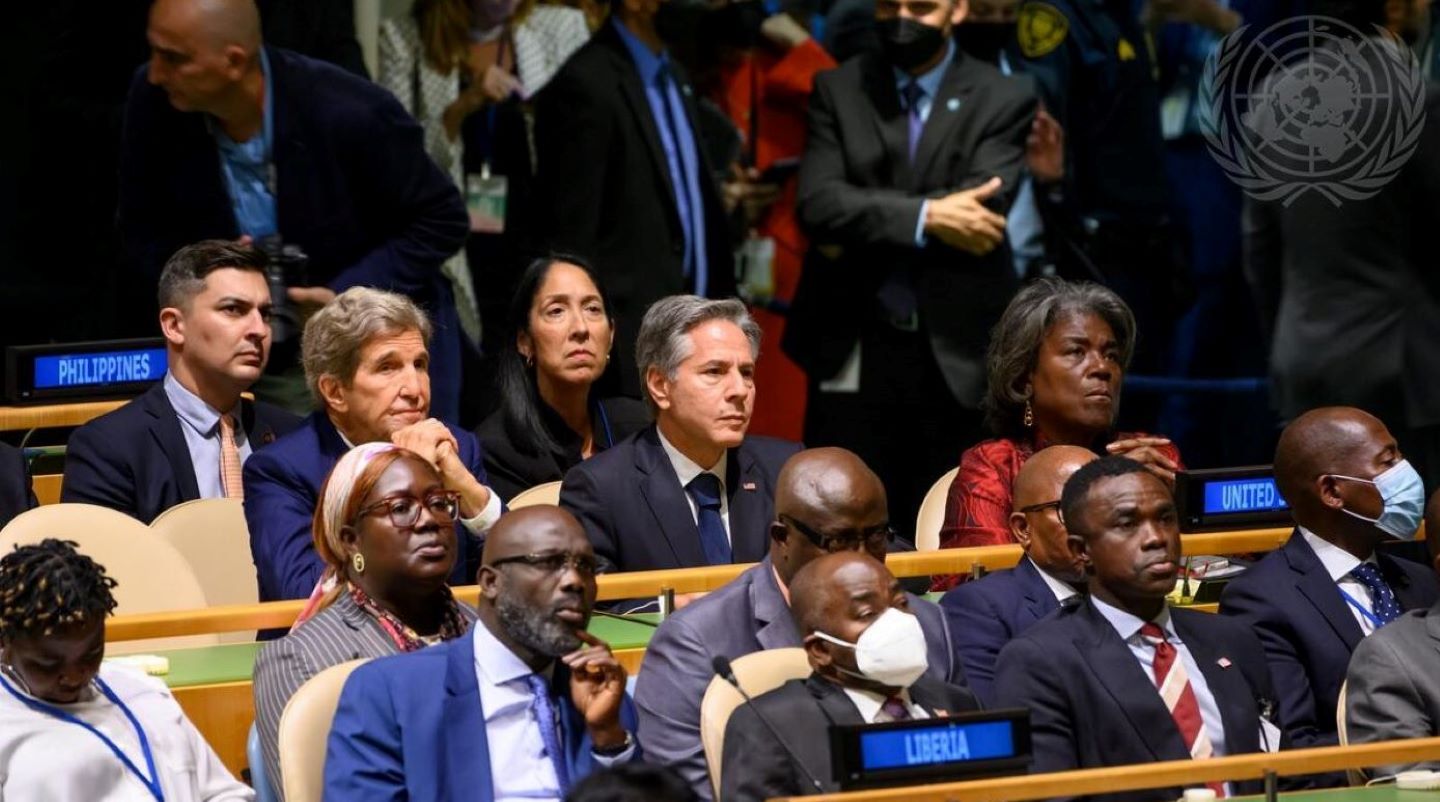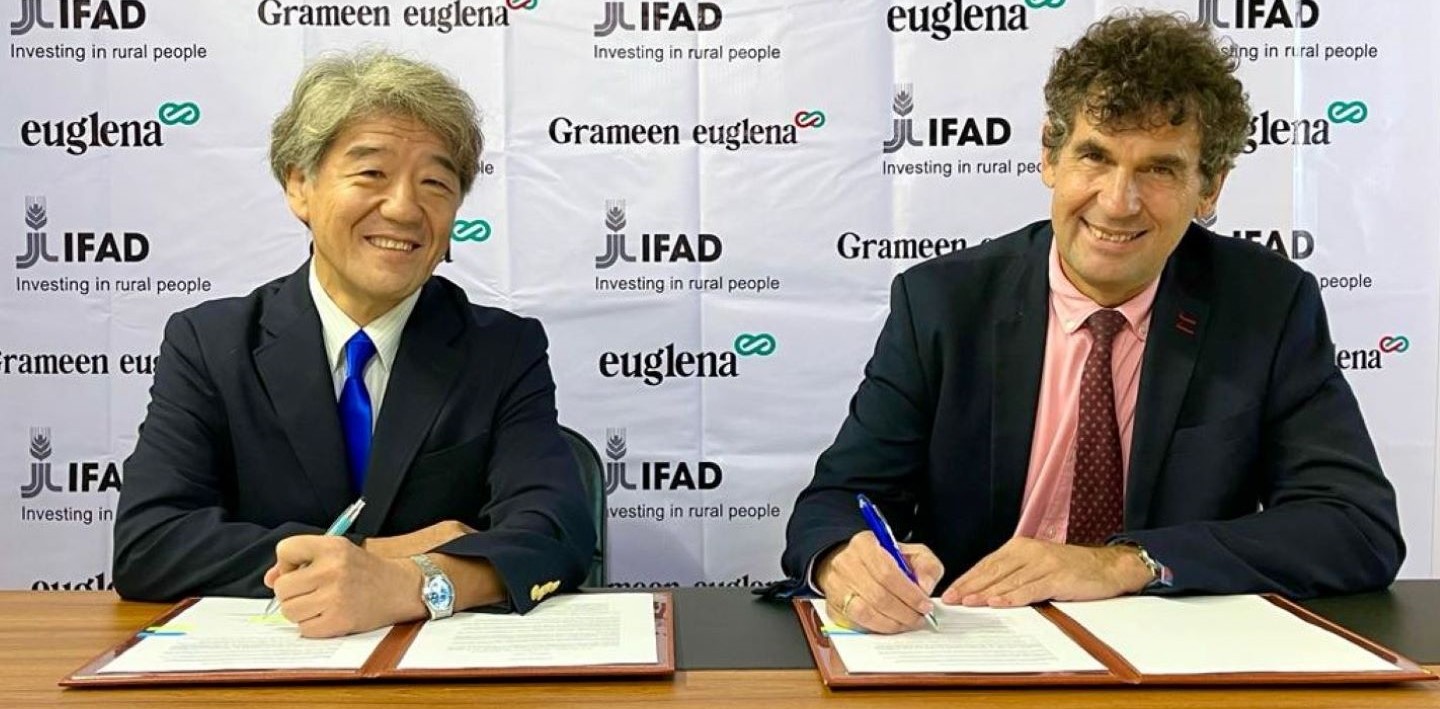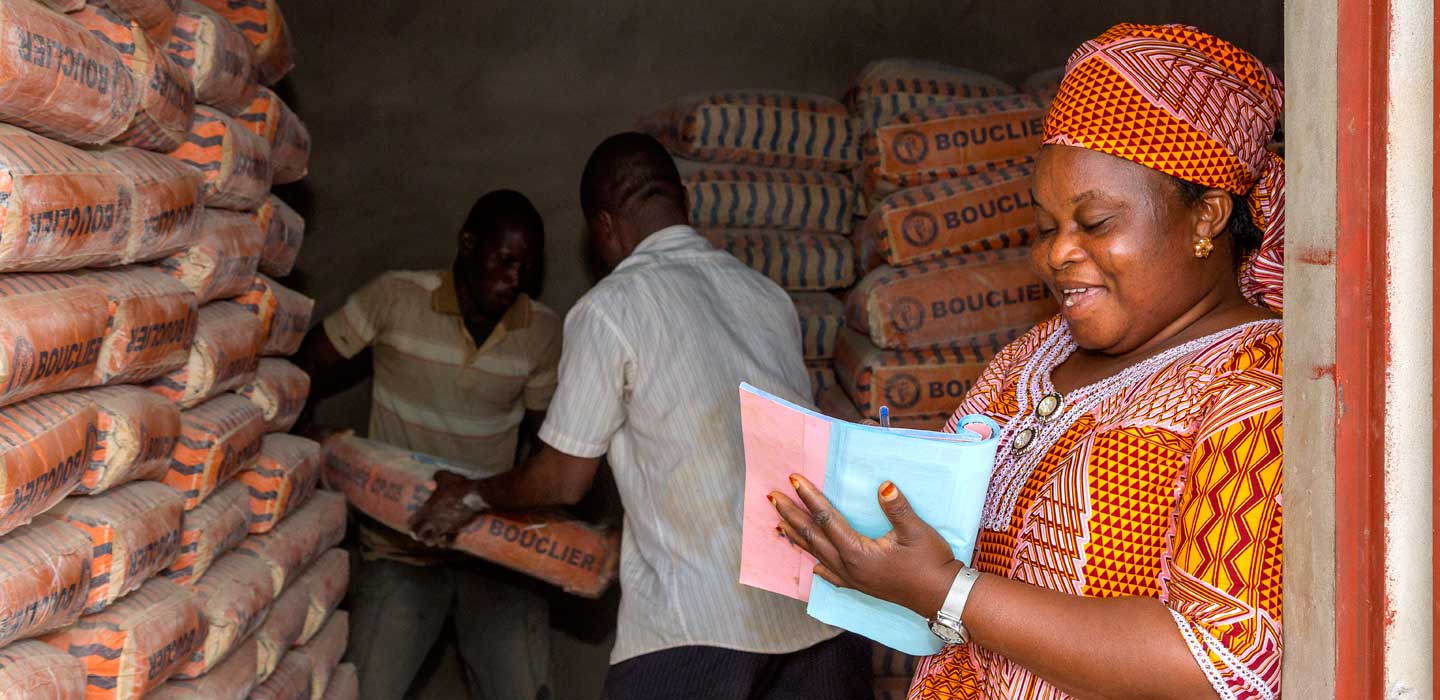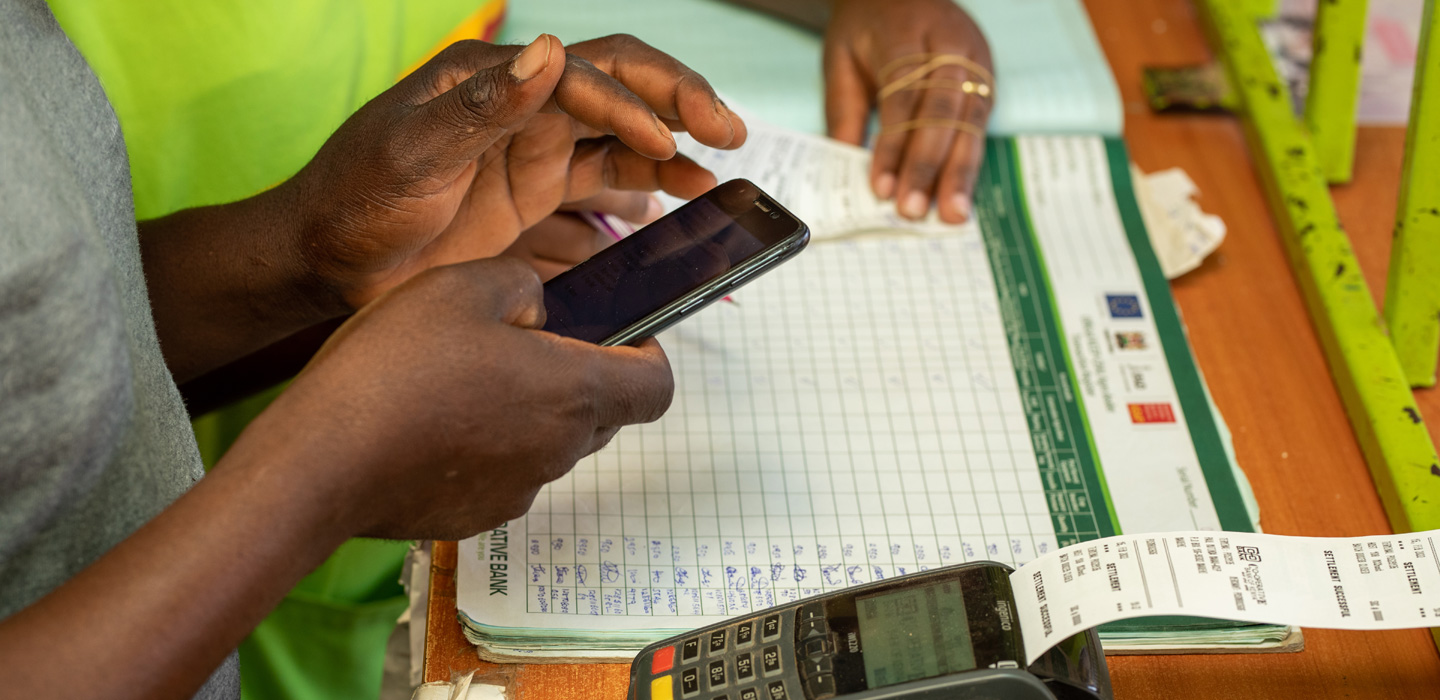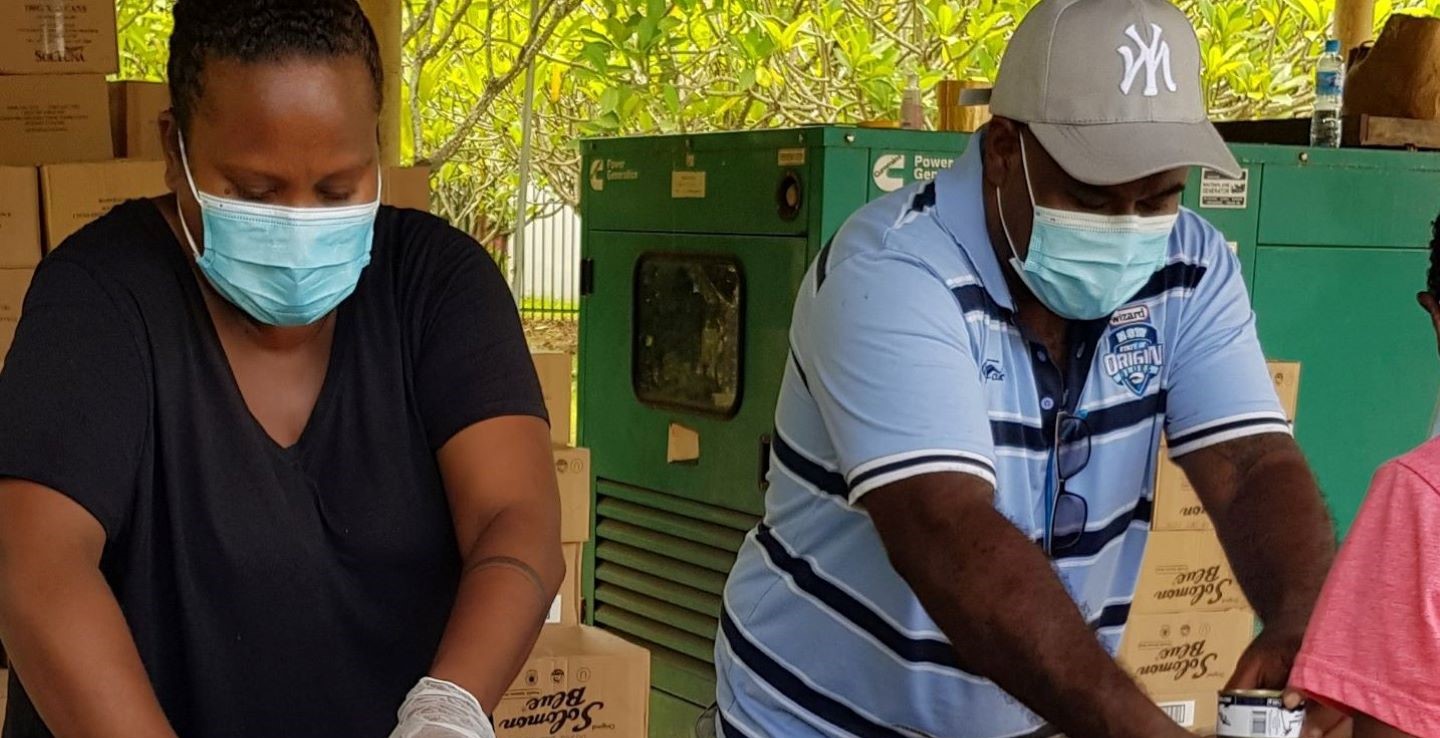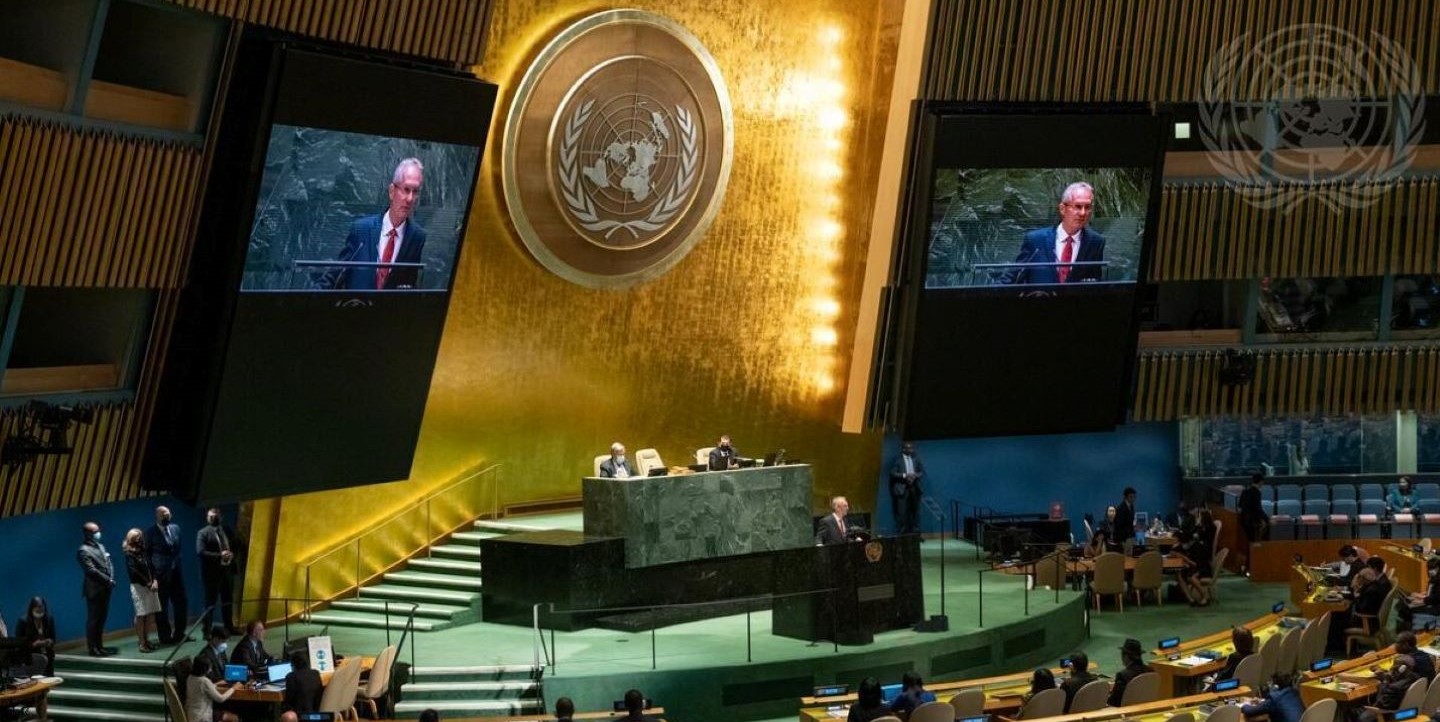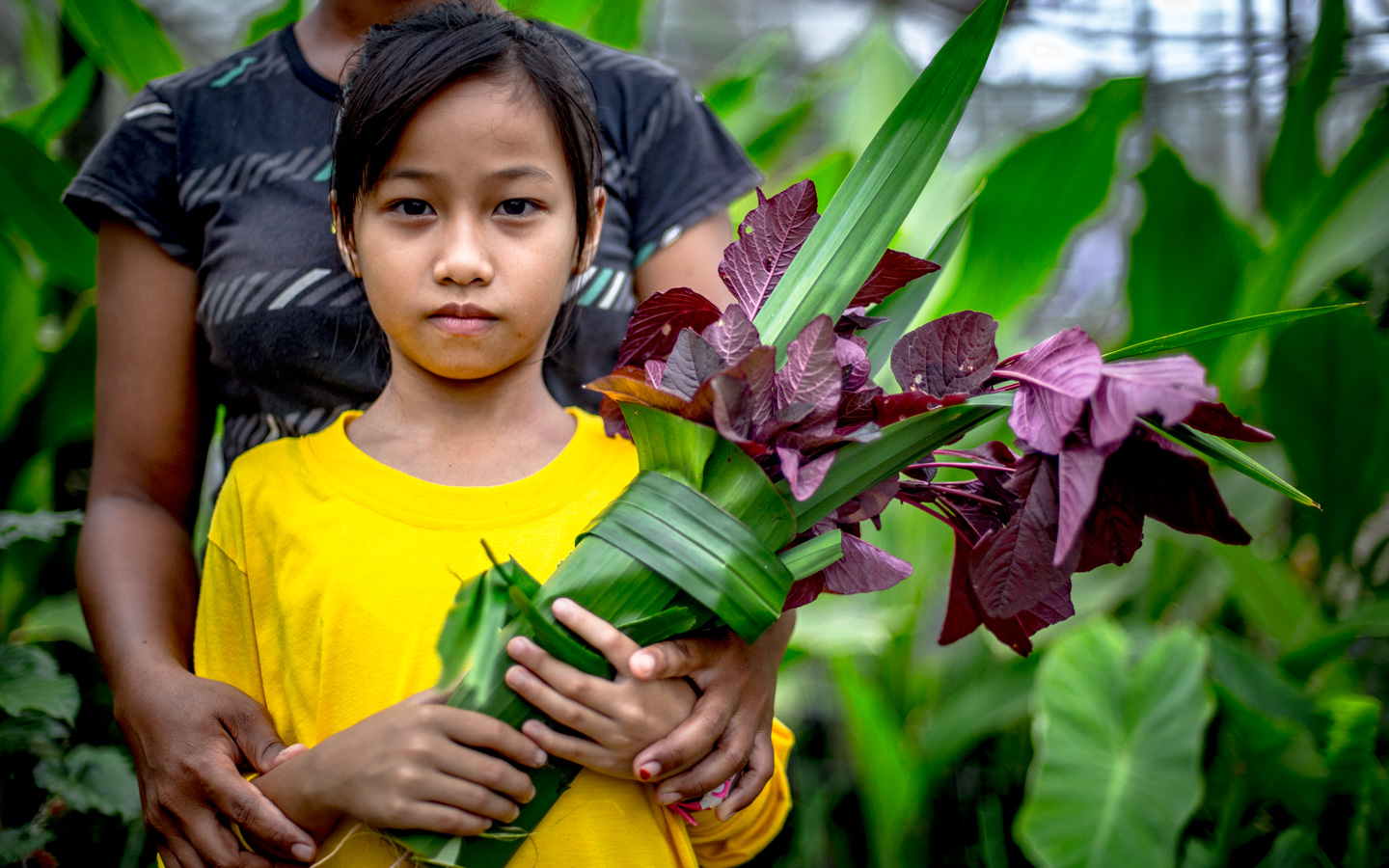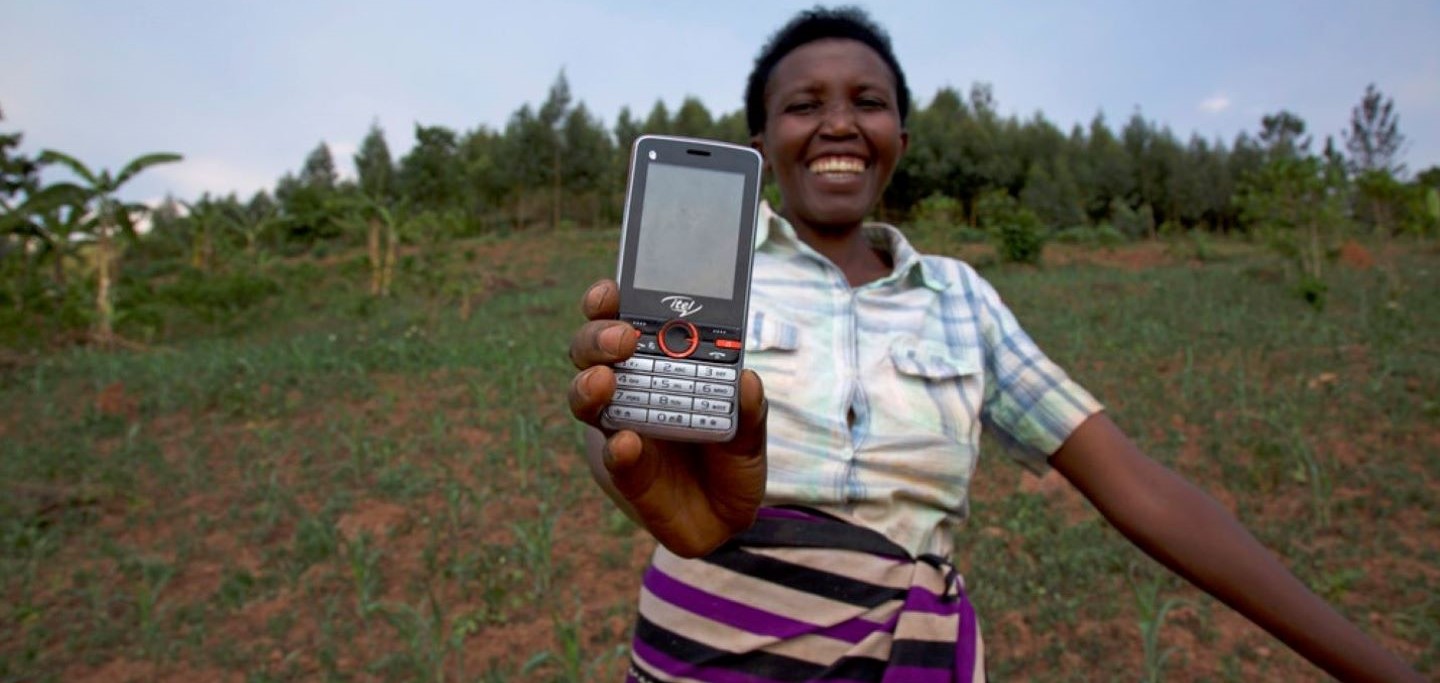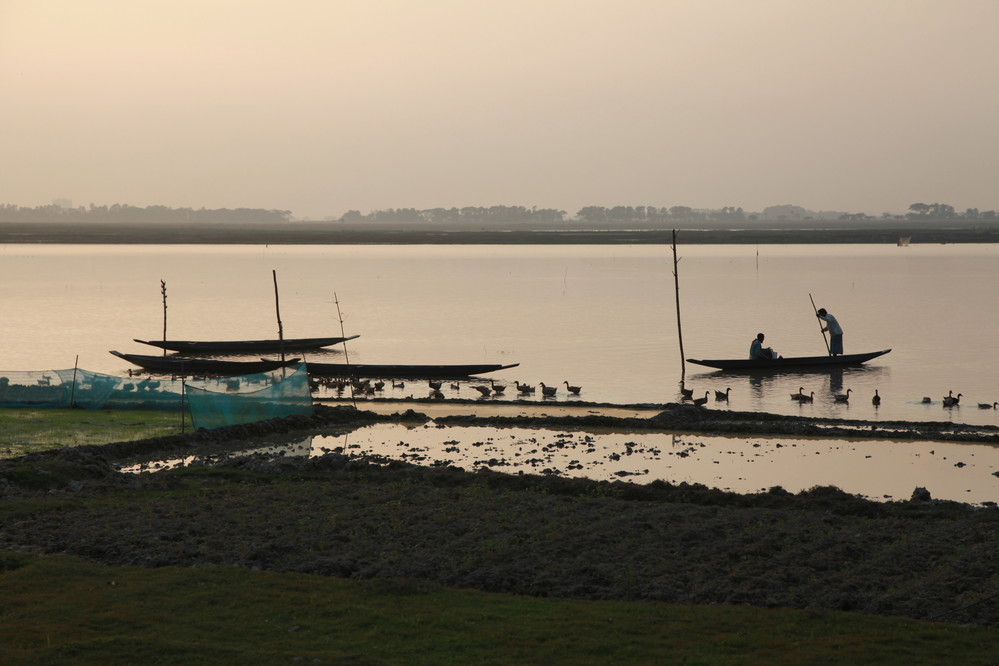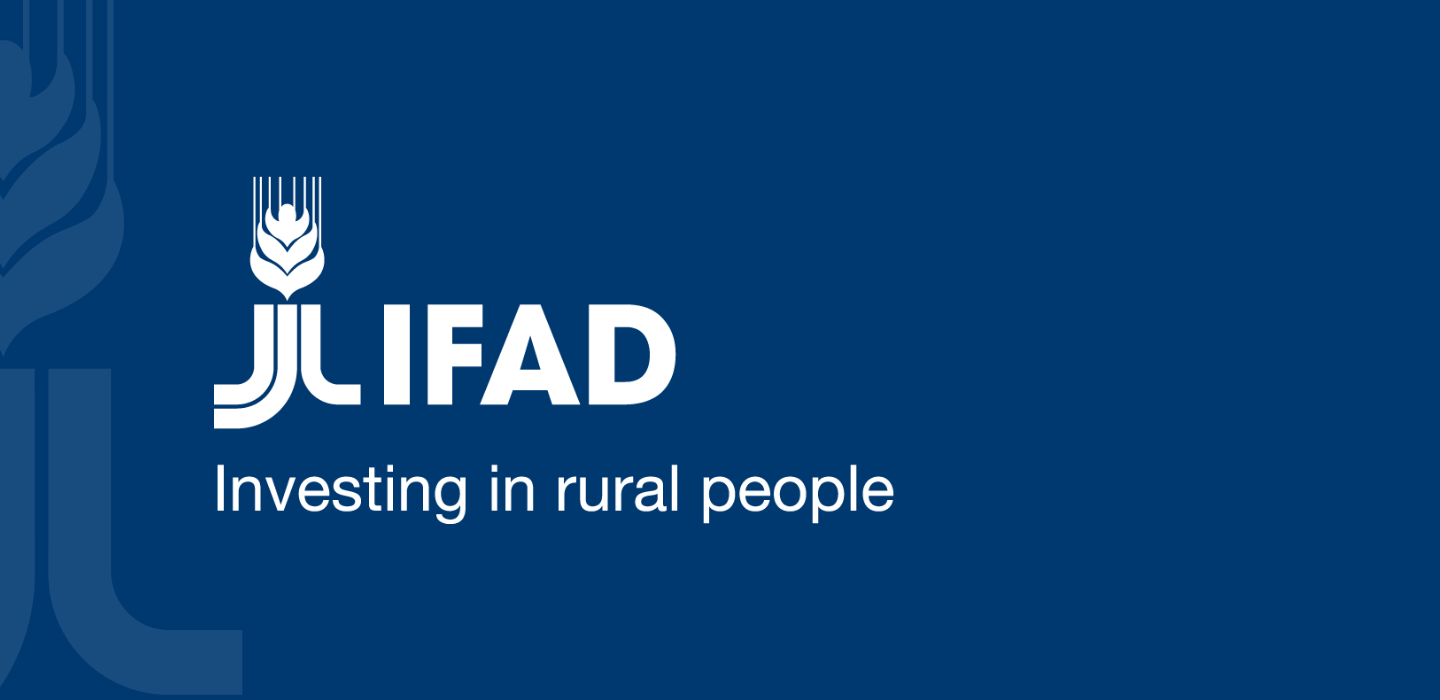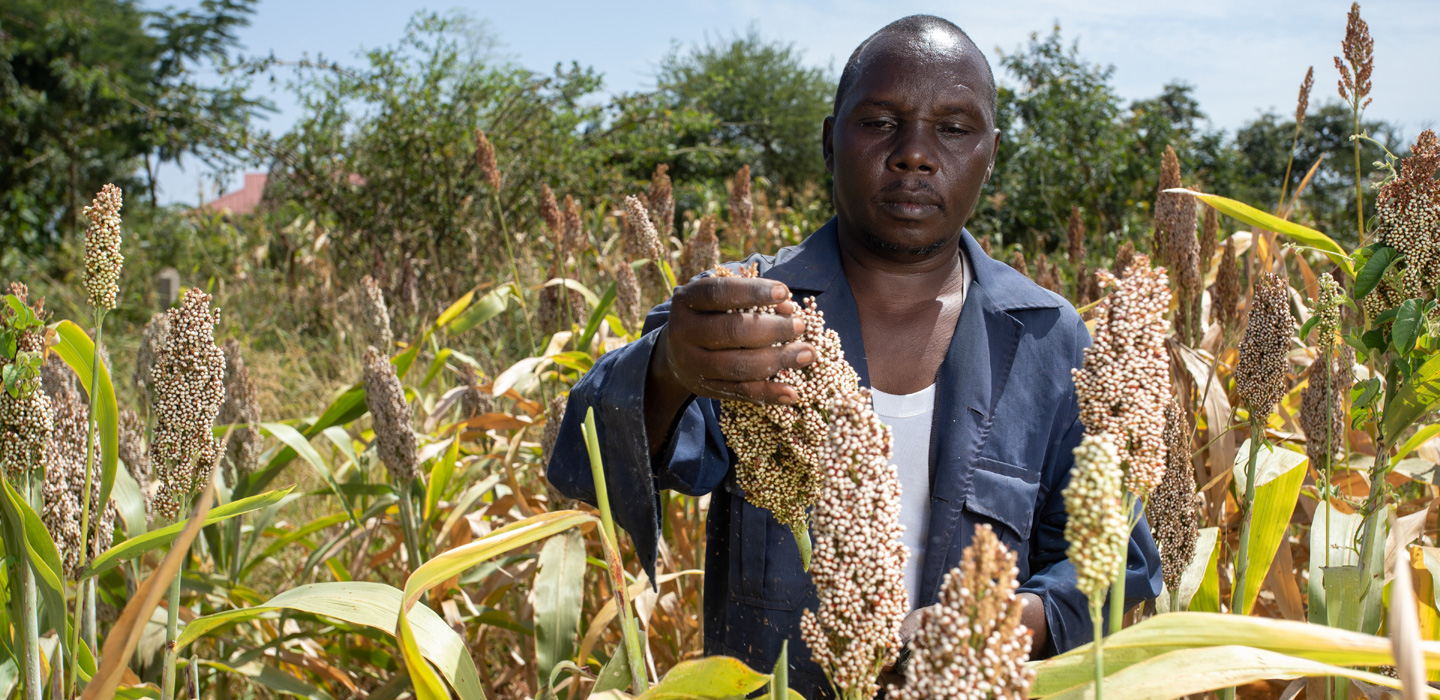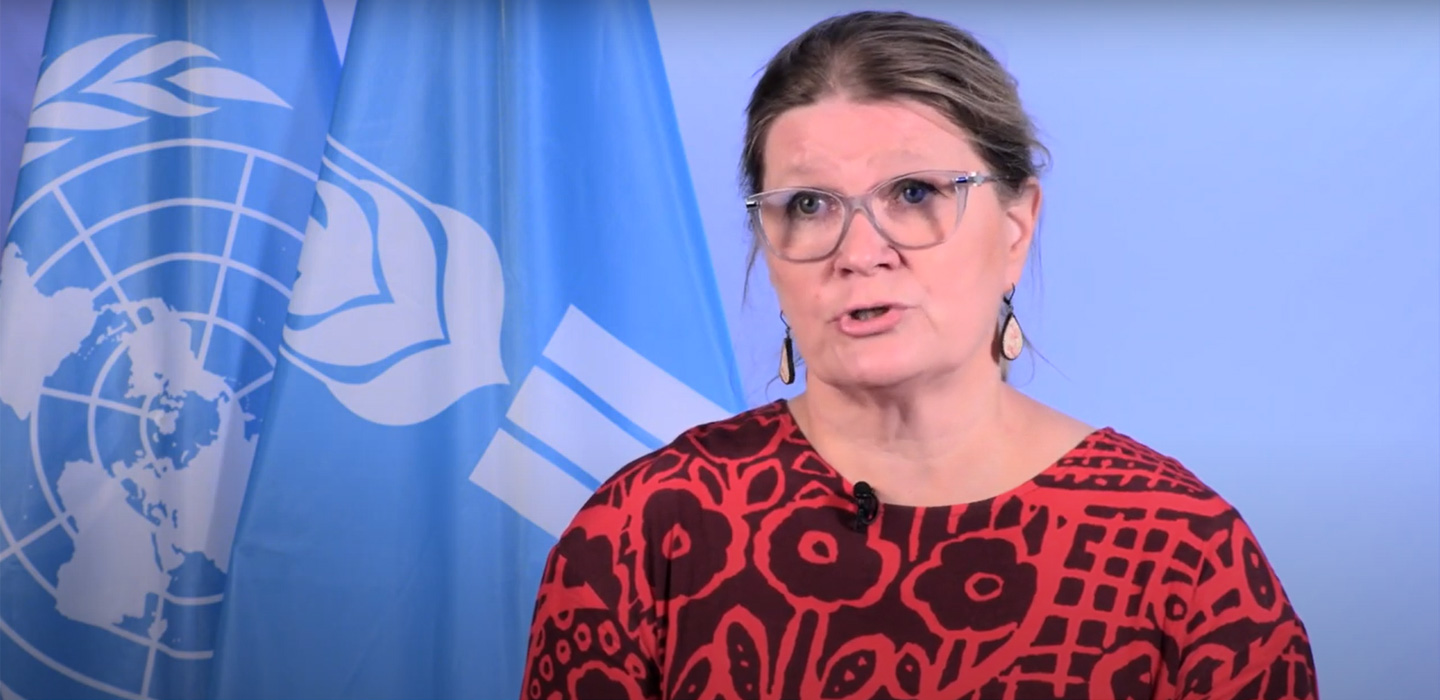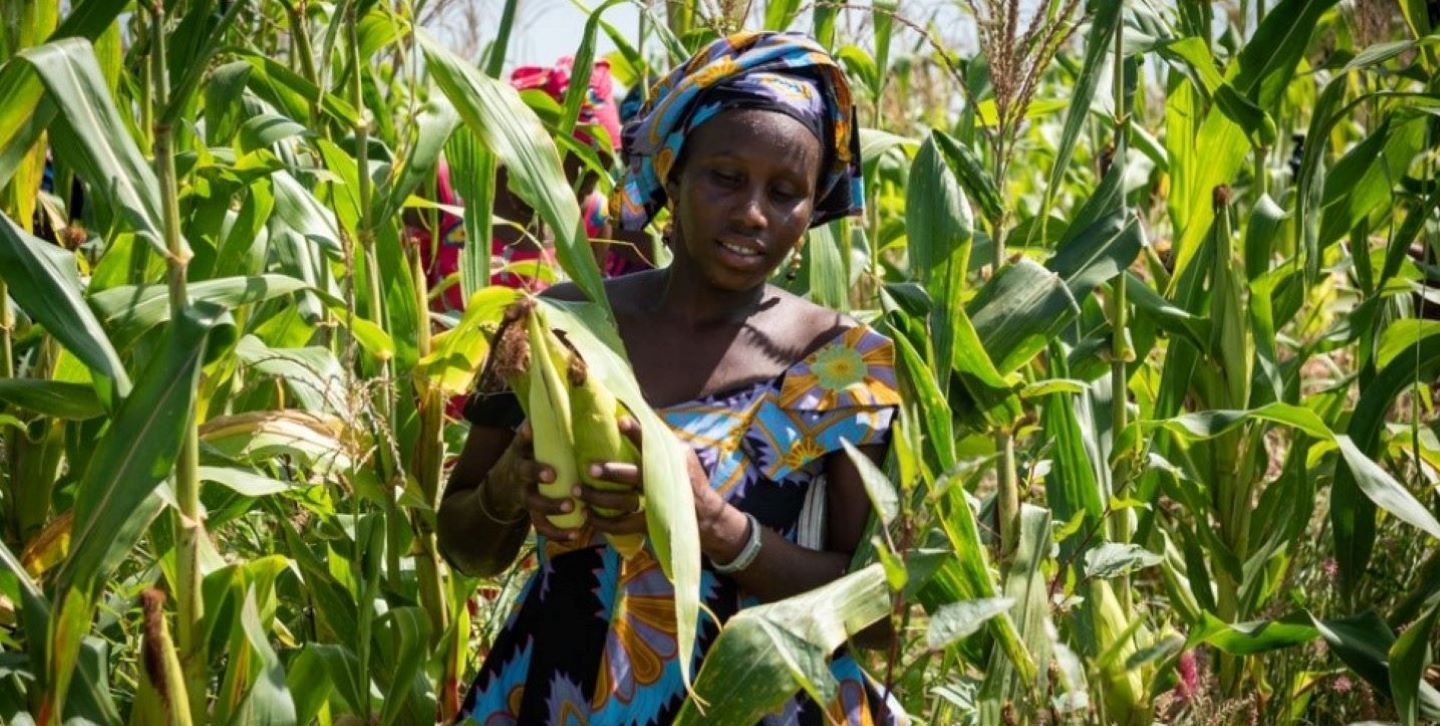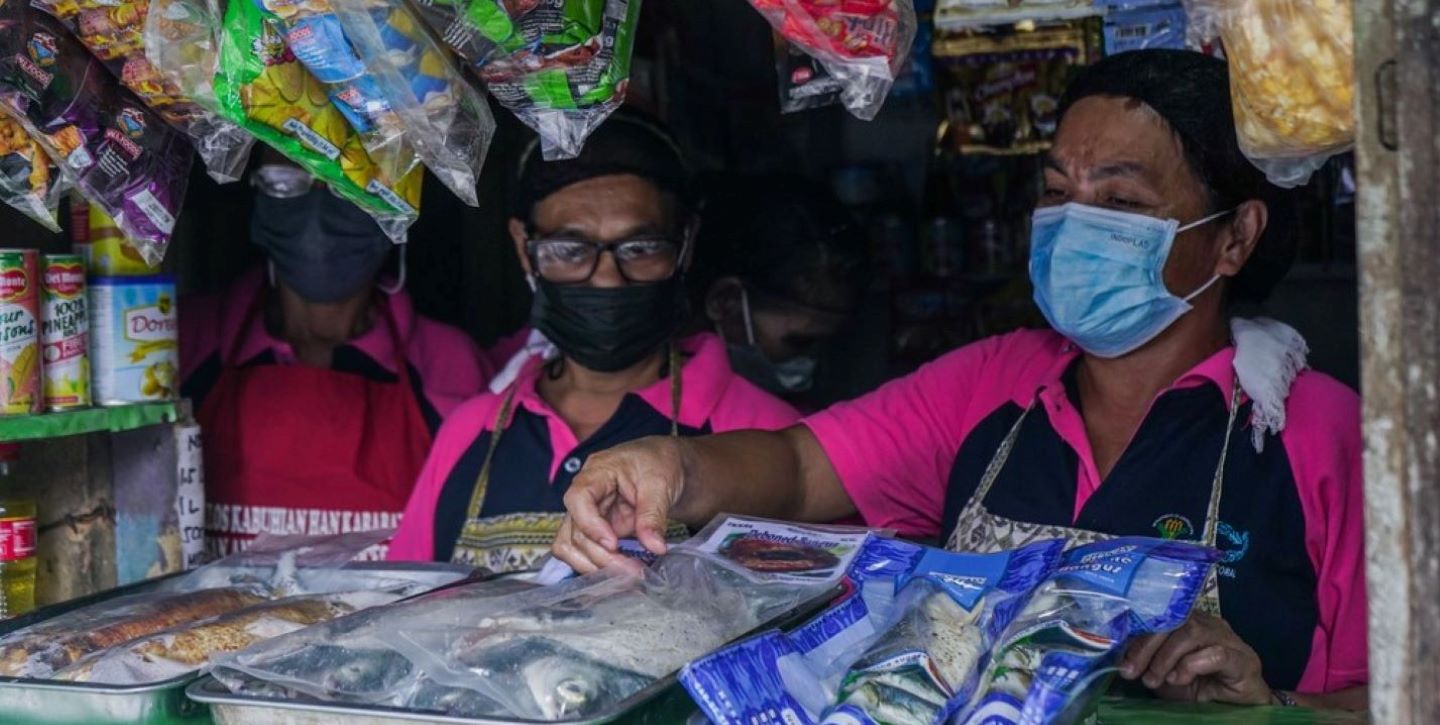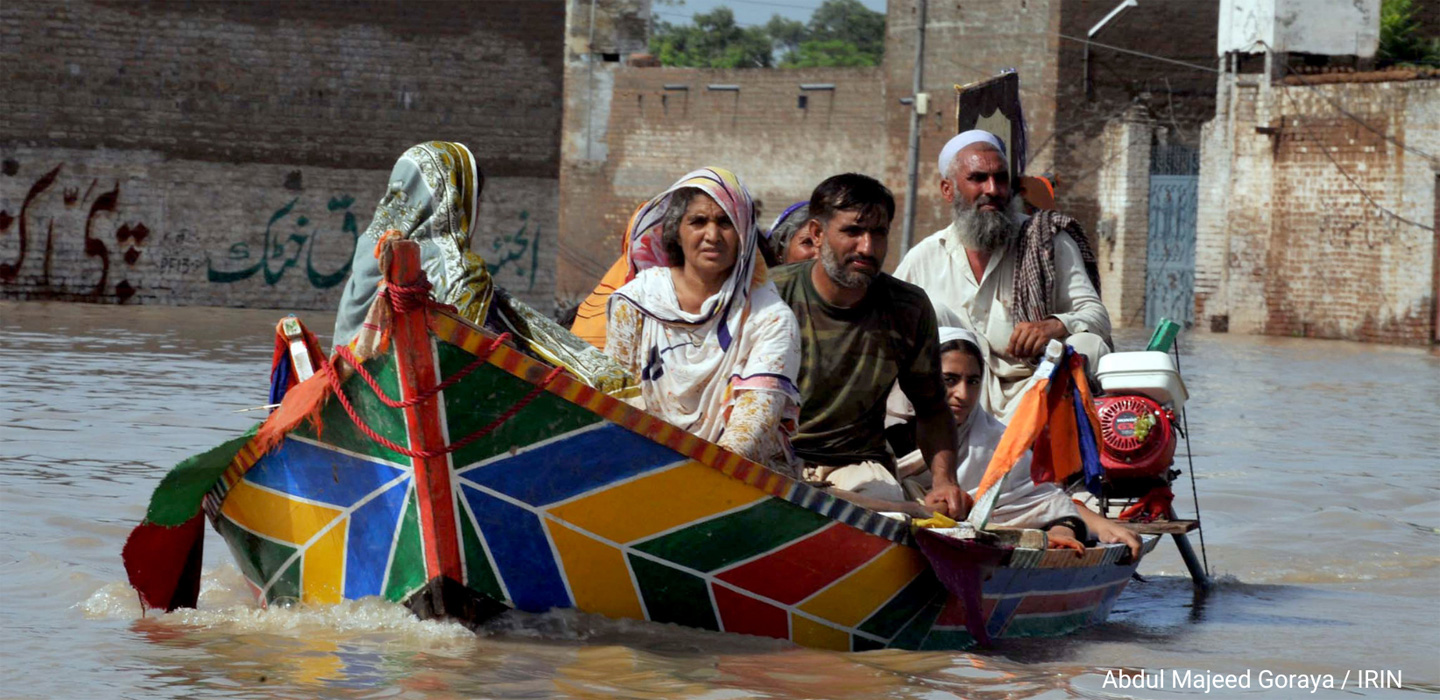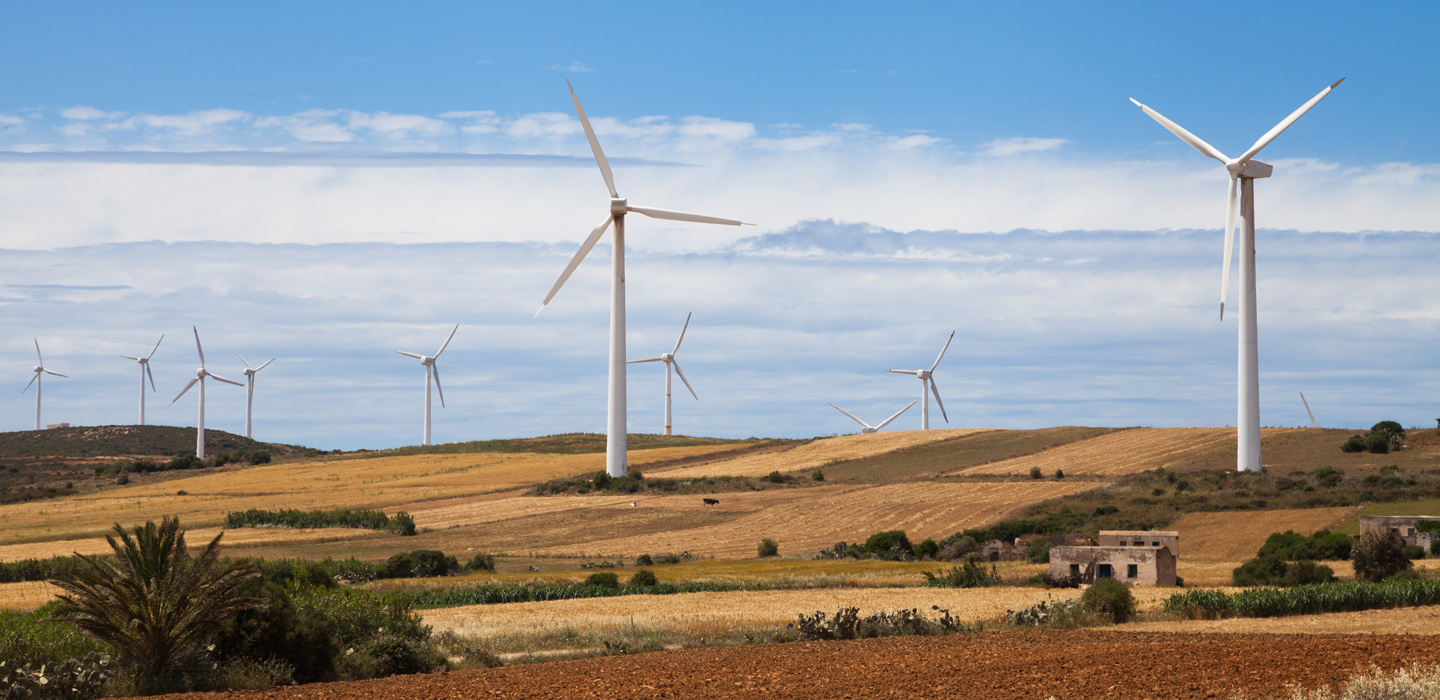Latest
Latest

Latest
Manual Submenu Topics
Search Results Filters
Search Results
Climate finance keeps carbon where it belongs: underground
Climate finance is essential to prevent the worst-case climate scenarios from happening and to protect the most vulnerable people from a climate breakdown.
Financing resilience: how ASAP+ is helping rural communities adapt to climate change
When it comes to climate change, small-scale farmers are among the world’s most vulnerable communities. This is why IFAD focuses on climate resilient agriculture and climate finance through programmes like ASAP+.
Norway pledges an additional US$9.5 million to climate adaptation for small-scale farmers
As part of a commitment to triple its support to climate adaptation by 2026, Norway has pledged an additional NOK 100 million (approximately US$9.5 million) contribution of urgently needed climate finance to IFAD today.
Four ways small-scale fishers can help us weather the climate storm
Climate change and environmental degradation are posing an unprecedented threat to the world. Find out how small-scale fishers are weathering the storm – and becoming part of the solution.
Placing small-scale farmers and rural populations at the heart of climate discussions - IFAD at COP 27
To ensure small-scale farmers and rural populations from developing countries receive the attention and funding they urgently need, IFAD is organising, and will be active in, over twenty events at COP27 to highlight the challenges and solutions that small-scale farmers need to feed a growing population while adapting to the escalating impacts of climate change.
At COP27, we need big wins for a greener future, says IFAD President
Ahead of this year’s COP, President Lario shares three big wins for the planet that can mitigate climate change and help the world’s poorest rural people adapt to its inevitable impacts.
IFAD loan to help mitigate impact of crises on small-scale producers and the underserved in Mozambique
The social and economic impacts of the COVID19 pandemic and the Ukraine war are creating significant challenges for the most vulnerable people, increasing the risk to livelihoods and food security in developing countries. IFAD is therefore stepping up its commitment to promote rural financial inclusion and to safeguard rural communities’ livelihoods with a new US$ 2 million loan to Futuro Mcb.
Adapt or starve – UN Agricultural Fund calls for urgent climate finance for small-scale farmers
With the negative impacts of climate change becoming more frequent and severe, IFAD is calling for urgent and increased financing to support hundreds of millions of small-scale farmers adapt to climate change.
The planet is awash with climate disasters. Meet the rural people battling to endure them
One year on from the biggest global commitment to financing climate adaptation at COP26, we are yet to see the actions needed to follow through on this promise.
Seeing the bigger picture: 6 ways IFAD uses GIS to optimize climate investment
Discover how IFAD uses Geographic Information Systems to better understand where and how climate change is affecting smallholder farming, and what is needed to mitigate its effects.
Climate Change in Africa, what’s really happening? – Episode 37
COP27 is upon us – join us for an African perspective on what to expect from this year’s UN climate change conference in Egypt.
IFAD and EU provide support to Malian diaspora to boost investments in agricultural sector
Malian diaspora is keen to invest in the development of small and medium sized businesses (SMEs), especially to develop the agriculture sector, if they can access the right training, information and financial products, according to a new report funded by the European Union, commissioned by IFAD and developed by Red Mangrove Development Advisors, and Adept, the Africa-Europe Diaspora Development Platform.
Small-scale farmers could help fill the global food gap if they irrigate properly – even with growing climate challenges
Small-scale farmers hold the key to feeding the world, its important for them to trust and invest in different types of irrigation systems.
Uzbekistan and IFAD renew strategic partnership to address global challenges including food supply
Amid global threats including climate change, increasing food and input costs and rising poverty, IFAD and the Government of Uzbekistan have extended their successful cooperation to continue to support the country in meeting its rural development goals.
A tale of two towns in Tajikistan
In Tajikistan two neighbouring towns face different fates as one suffers the aftermath of drought and displacement and the other is saved by irrigation.
New app ‘PostalPay’ will slash the cost of sending money from Europe to Uganda
IFAD, Inpay, a cross-border payments company, and its subsidiary company Eurogiro, a global postal cross-border payments network, have joined forces to make the cost of sending money through mobile channels from Europe to Uganda four times cheaper.
IFAD President Alvaro Lario heads to Finance in Common Summit in Côte d’Ivoire
The President of IFAD, Alvaro Lario, will attend the Finance in Common Summit co-organized by the African Development Bank and the European Investment Bank on 19 and 20 October 2022.
Five ways IFAD is helping to reduce rural poverty in an age of climate change
Even when a world without poverty seems out of reach, here’s how IFAD continues to work in developing countries, amplifying the voices of rural people and integrating them into value chains, so they can earn and save, while feeding the world and conserving the natural environment.
Rural women lead the way
There is no solution to climate change without rural women. It’s time to invest in them. It’s time to let them lead the way.
What’s on the menu in 2050?
What’s on the menu in 2050? For World Food Day, we contemplate what our plates might look like in the future and explore how the world’s small-scale farmers are revolutionizing what we eat.
UN's IFAD exceeds targets on helping rural populations move out of hunger and poverty
IFAD surpassed its goal to make measurable strides in reducing poverty and hunger in the world’s rural areas, a rare impact assessment of projects representing a total investment of more than US$ 7.1 billion has shown.
Rural Women Rise
Meet some of the inspiring women IFAD supports as they, in turn, bolster the people around them.
You are what you eat: Indigenous youths breathe new life into ancient traditions
Young members of indigenous communities are working to reverse centuries of dispossession and preserve their way of life, including their food heritage.
With the world in firefighting mode, we cannot forget about rural women
As the world faces a myriad of crises, experts fear that the progress rural women and girls have worked so hard for may be reversed. Here is how IFAD is working to prevent this.
Water brings life to rural people
Irrigation brings water to the world's poorest rural people in the right quantities and when they need it, helping farmers adapt to climate pattern shifts.
What I’ve learned about resilience from rural communities in Guatemala
Faced with the impacts of climate change, small-scale producers in Guatemala urgently need to manage risk using tools like insurance. Read how INSURED promotes the use of agricultural insurance to build resilience and strengthen livelihoods.
Making change happen now: my commitment as IFAD President
On his first day in office, IFAD President, Alvaro Lario, shares his thoughts on how IFAD can address the challenges of today to ensure sustainable global food systems and transform the lives of the world’s poorest rural people.
Alvaro Lario, global finance executive, takes helm at UN's International Fund for Agricultural Development
Development finance expert Alvaro Lario takes the helm of the UN’s International Fund for Agricultural Development on Saturday with an urgent mission to battle poverty and hunger among the world’s rural poor as they face existential threats of climate change and food insecurity.
Tackling food loss for sustainable food systems
Reducing food losses makes food systems more sustainable. Although the exact causes are different for every crop and in every country, there are plenty of avenues to prevent, detect, and reverse these losses.
US Ambassador Cindy McCain’s visit to Sri Lanka highlights work on food security by FAO, IFAD and WFP
The United States Permanent Representative to the UN Agencies in Rome, Ambassador Cindy McCain concluded a two-day official visit to the North Western and Central Provinces of Sri Lanka today. Accompanied by the United States Ambassador to Sri Lanka, Julie Chung, Ambassador McCain visited several projects of FAO, WFP and IFAD.
A decade of progress for small-scale farmers in Cuba
Marking ten years in Cuba, IFAD’s Country Director met small-scale farmers and partners to discuss progress made and what is yet to be done.
The perfect weekend away in rural Bangladesh
Discover hidden gems in rural Bangladesh with two IFAD colleagues as they visit a community-led eco-tourism project that has transformed the area.
Fighting Climate Change in South Asia – Episode 36
From chefs in India to fisheries in Maldives, we examine how the relationship between agriculture and climate change is affecting South Asia. We also reflect on 75 years of independence in India and Pakistan and learn about IFAD’s work in Bhutan and Maldives, and so much more in this bumper episode.
Mapping the way to a better future
An inside look at how Geographic Information Systems (GIS) can help map projects and lift rural people out of poverty.
What everyone was talking about at UNGA77
The trending topic at UNGA this year was the escalation of the war in Ukraine. But the topic IFAD’s Alberto Trillo Barca heard discussed most in the halls and lifts of UN HQ in New York was food security and the global food crisis.
IFAD, Japan and Bangladesh partner to bring smallholder farmers closer to international markets
IFAD and Grameen Euglena, a joint venture between Japan's Euglena Co Ltd and Bangladesh's Grameen Krishi Foundation, are collaborating on an initiative that supports smallholder farmers to cultivate mung beans.
Call for Proposals: Remittance Innovation Champions 2022 South Africa
The Financing Facility for Remittances (FFR) of IFAD is pleased to announce the Remittance Innovation Champions 2022 – South Africa (RIC22-SA) Call for Proposals.
Ghana: Public-private sector partnerships to drive digital and financial inclusion in rural areas
IFAD announced partnerships on Tuesday to slash the cost of migrant remittances to Ghana with financial services providers Ecobank Ghana and Fidelity Bank and pan-African fintech MFS Africa, aiming to boost a vital source of income for a country grappling with the economic impact of the COVID pandemic and Ukraine war.
Solving a data dilemma in the Solomon Islands
When the Solomon Islands began seeing its first cases of COVID-19 in early 2022, the Ministry of Agriculture and Livestock activated emergency food relief efforts. But after years of neglecting data collection, how do you find and feed people without addresses, street names or house numbers?
IFAD’s hopes for UNGA77
World leaders and the heads of UN agencies come together in New York this week for the UN General Assembly. As global crises compound and converge, now is the time for global action and common ground. IFAD’s President-elect, Alvaro Lario, will use this opportunity to advocate for rural people and push to transform food systems.
2022 Call for Nominations: IFAD Indigenous Peoples Awards
The Indigenous Peoples Awards recognize the efforts and the achievements of development projects that successfully engage with indigenous peoples or ethnic minorities living in rural areas. They promote best practices, share knowledge and identify opportunities to replicate and scale-up results.
Mobile remittances to lead digital revolution in marginal rural areas in five African countries thanks to IFAD grant funded by the EU
IFAD announced today its first grant to a digital payments company, MFS Africa, to promote the use of mobile remittances in marginal rural areas in five African countries: Ghana, Kenya, Senegal, The Gambia and Uganda.
A new sustainable way to fish for better incomes and diets in Nigeria and Ghana
Cage aquaculture is a greener, cheaper method of fish farming. Thanks to South-South and Triangular Cooperation, ProSCAWA is helping small-scale fishers get started with cage aquaculture and meet growing demand for fish.
IFAD Statement on the Passing of Queen Elizabeth II
IFAD President Gilbert Houngbo today issued the following Statement on the passing of Queen Elizabeth II.
Hungry caterpillars threaten Kenya's crops. Can plants provide a natural pest control solution?
Kenyan farmers and their crops face a tiny but destructive threat: the fall armyworm. With climate change causing more infestations, push-pull technologies are a sustainable and affordable way of naturally controlling pest numbers. Find out how this simple but effective technology works.
IFAD and South-South and Triangular Cooperation: An interview with Satu Santala
Global hunger and food insufficiency are increasing, reflecting increased inequalities arising from unequal economic recovery and persisting income losses following the pandemic. Satu Santala, Associate Vice-President of the External Relations and Governance Department at IFAD, tells us more about Fund’s approach to tackling these global challenges through SSTC.
It’s time to transform African agriculture. These numbers show why
African agriculture is at a crucial juncture. It has enormous potential to not only feed Africa, but also the world. Yet, global conditions are holding small-scale African farmers back. Five numbers show how transforming African agriculture can make a big difference.
Weathering the storm: How finance provides a lifeline for SMEs in times of crisis
The impacts of the war in Ukraine, coupled with the pandemic and climate change, are threatening the survival of small and medium-sized enterprises (SMEs) the world over. Finance is a critical lifeline, but can rural agri-SMEs access it?
“This is unprecedented”: IFAD’s Country Director in Pakistan reacts to the floods
Following months of incessant rain, nearly one third of Pakistan is underwater. Millions of people are affected, thousands have died, and agriculture is at risk. IFAD’s Country Director in Pakistan reflects on what is happening on the ground.
Racking up Renewables in Africa - Episode 35
With fossil fuels dwindling and access to energy already scarce in Africa, people are turning to renewable energy. In this month’s podcast, energy specialist, Dan Martin, explains how IFAD incorporates renewable energy into its projects, while a farmer tells us about the reality of renewable energies on the ground.
